
- Events Calendar
- News & Media
- Select Your Language en nl de es

Visitor Entry Tax
Visitors to Bonaire are required to pay a tourist entry tax of $75 per person, per visit.
Your personal travel itinerary:
Find the sites that interest you the most, from dive sites and hikes to sightseeing, dining and everything in between. Then, "favorite" them to create an itinerary that's all yours.
No favorites currently selected.
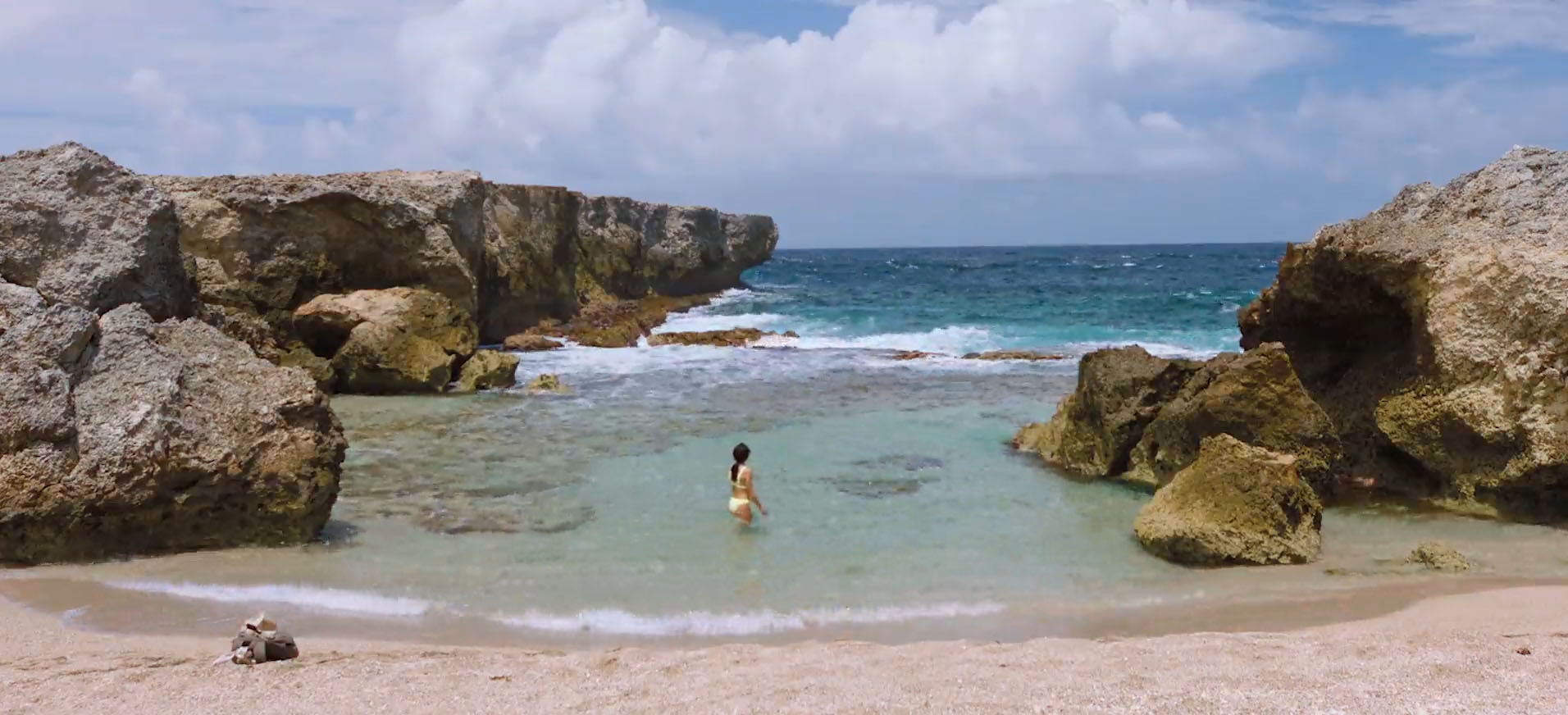
Bon Biní na Boneiru
The Island of Bonaire
It’s In Our Nature
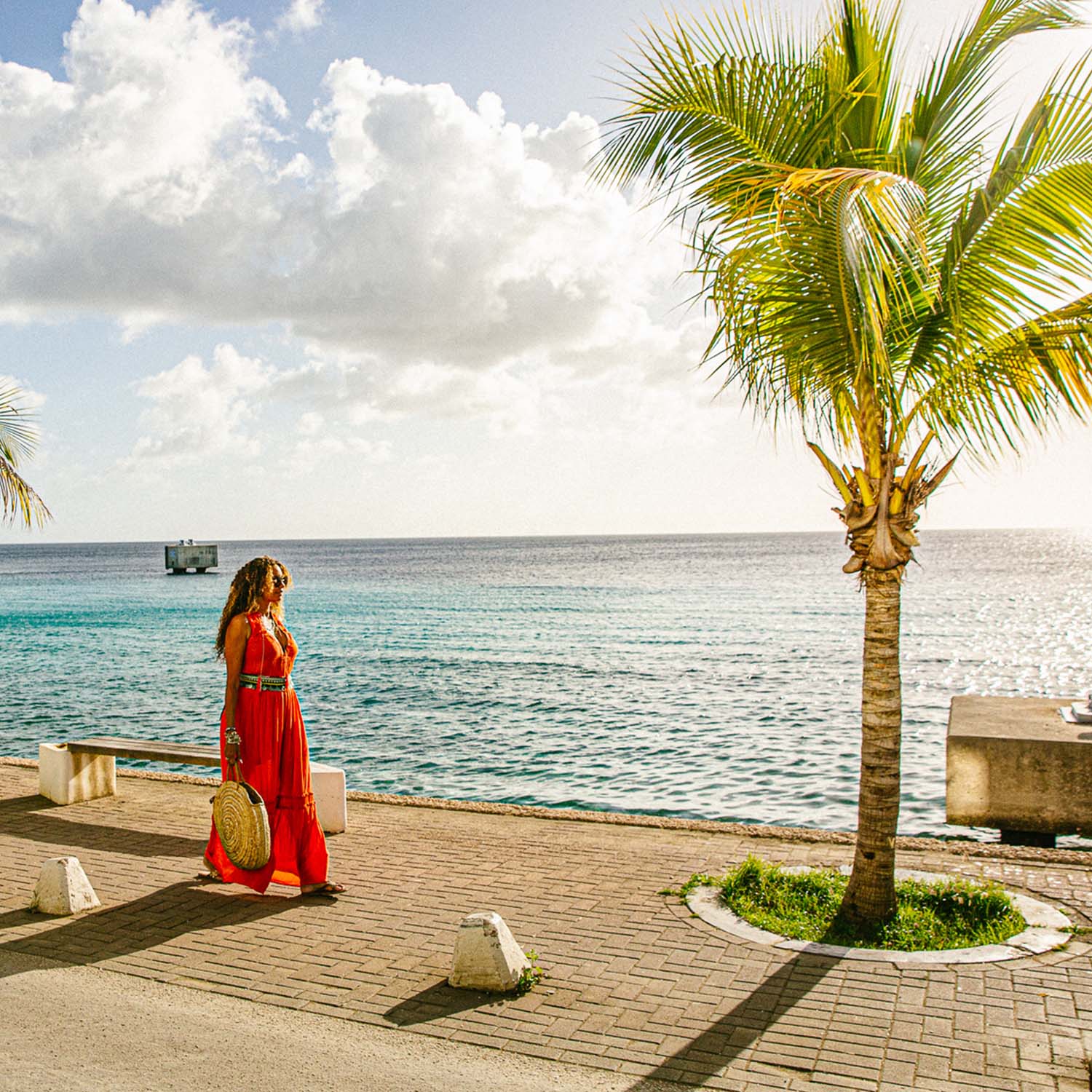
to Paradise
Whether you’re looking to explore our vibrant reefs that teem with tropical fish, find a quiet beach to call your own, or indulge in our unforgettable cuisine, it all starts right here.
Away from Home
Whether you prefer a hotel, resort, private villa, boutique hotel, B&B, or even an apartment, you’re sure to find a place that’s perfect for you.
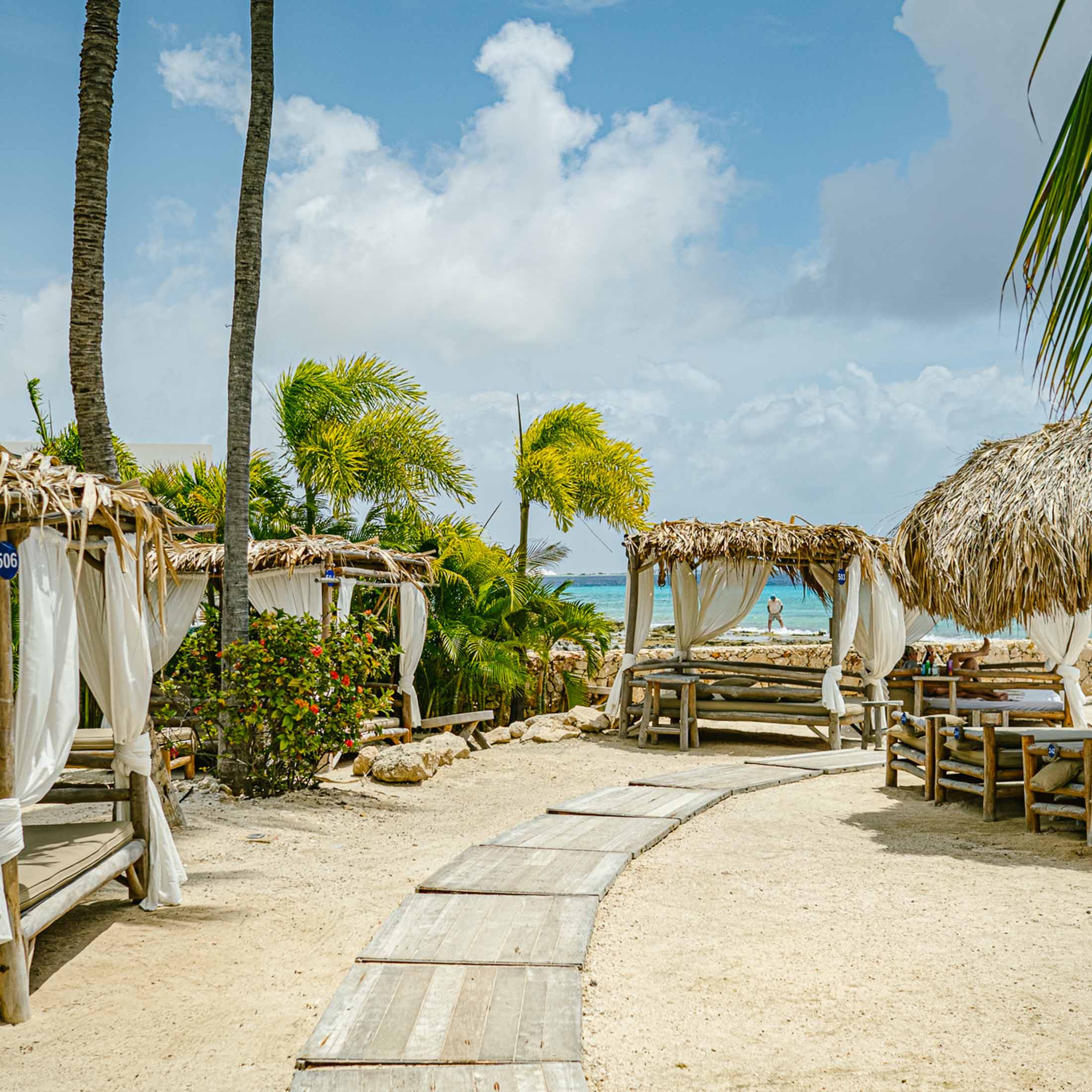
Bonaire Activities
Experience the unseen.
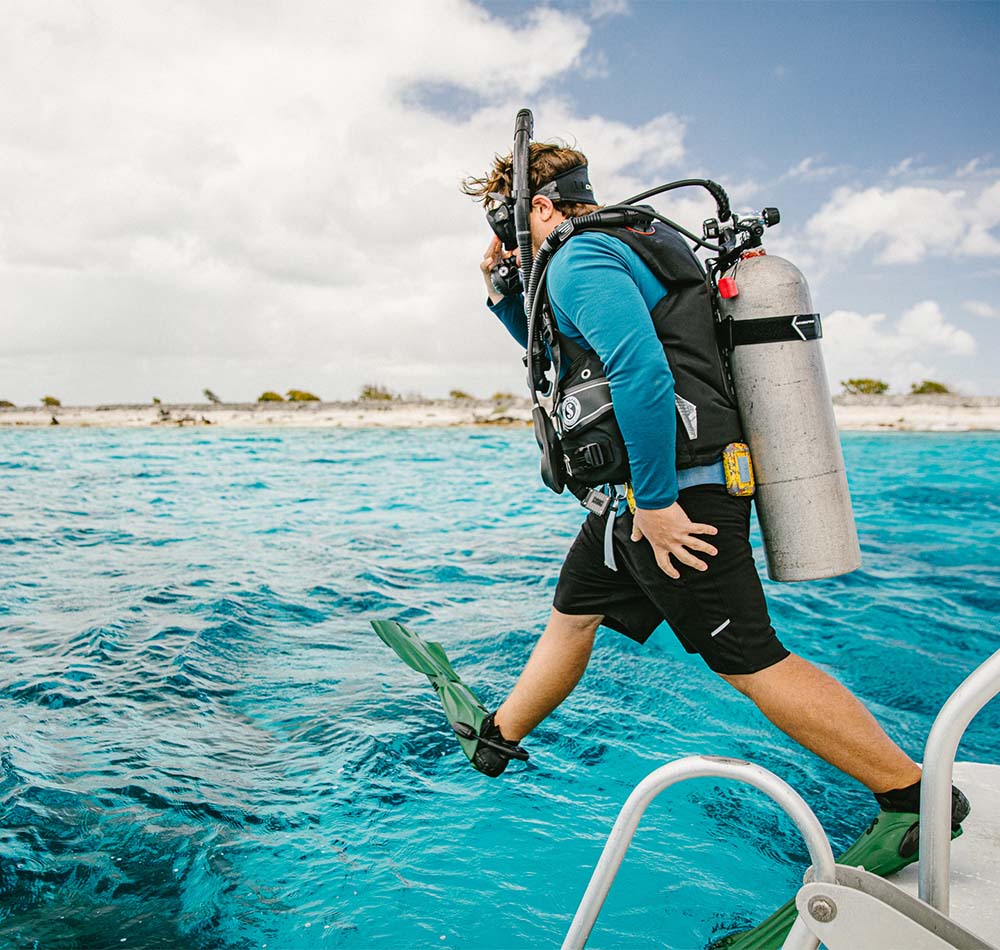
Bonaire offers untouched dive sites that are among the last truly unspoiled places on earth. Discover over 85 dive sites beneath our turquoise seas, where you'll find thriving reefs teeming with more than 350 species of fish and 57 species of coral.
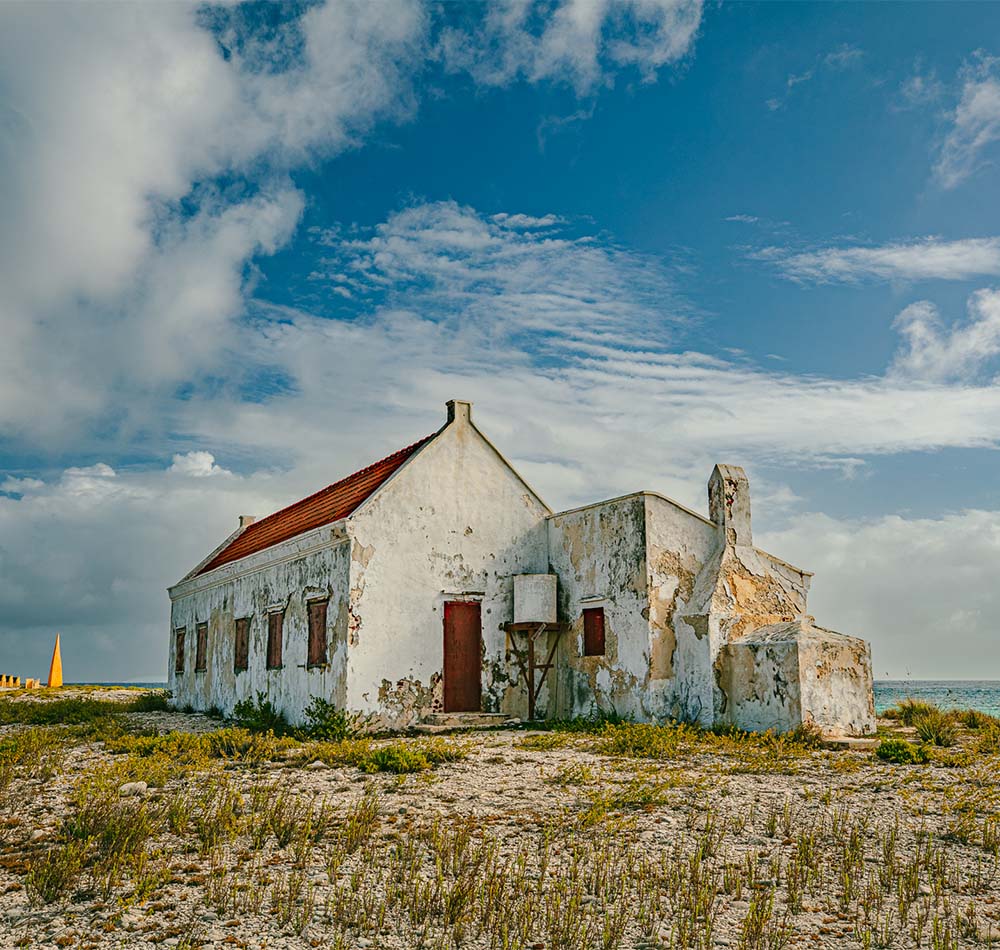
Take in the Sights
Whether you seek natural wonders or a secluded, romantic beach, Bonaire has everything you're looking for. And our seasoned local guides can help make it all easier to find.
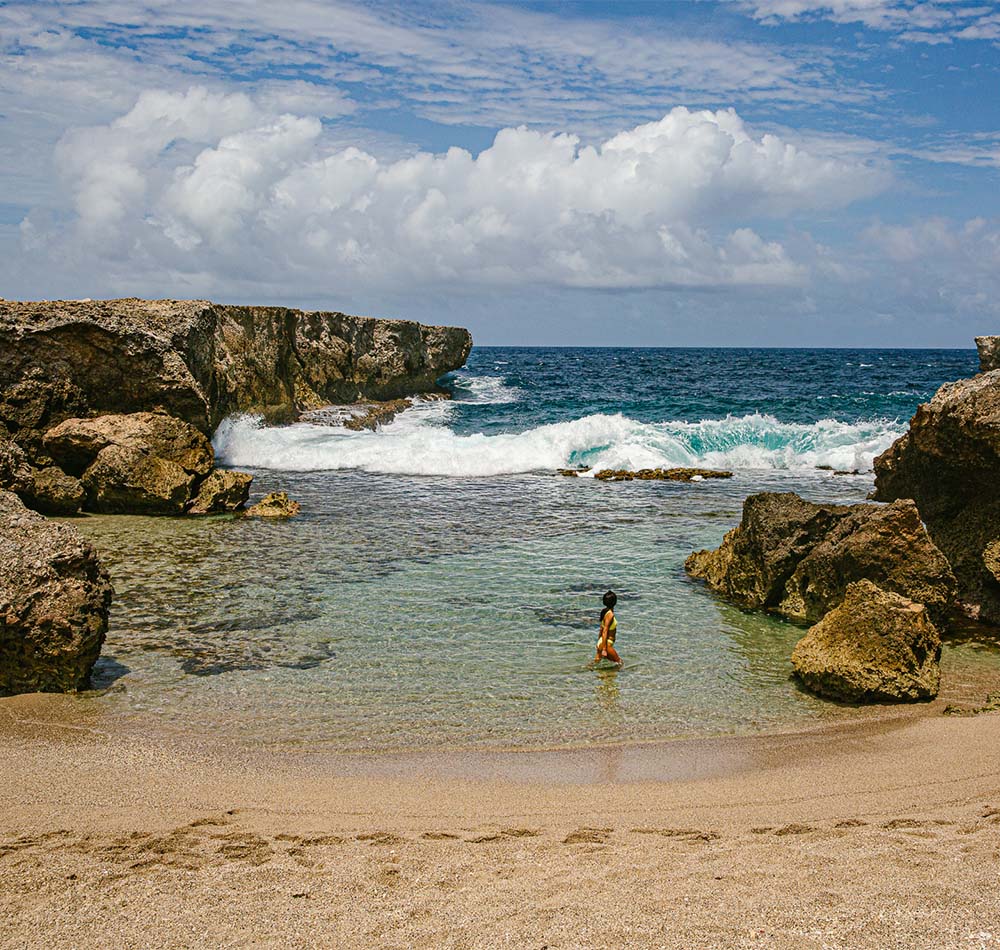
Finding the Perfect Beach
Sun, sand and surf come together perfectly on Bonaire's beaches. With over 22 tropical beaches on Bonaire and Klein Bonaire, you're sure to find your own personal paradise.
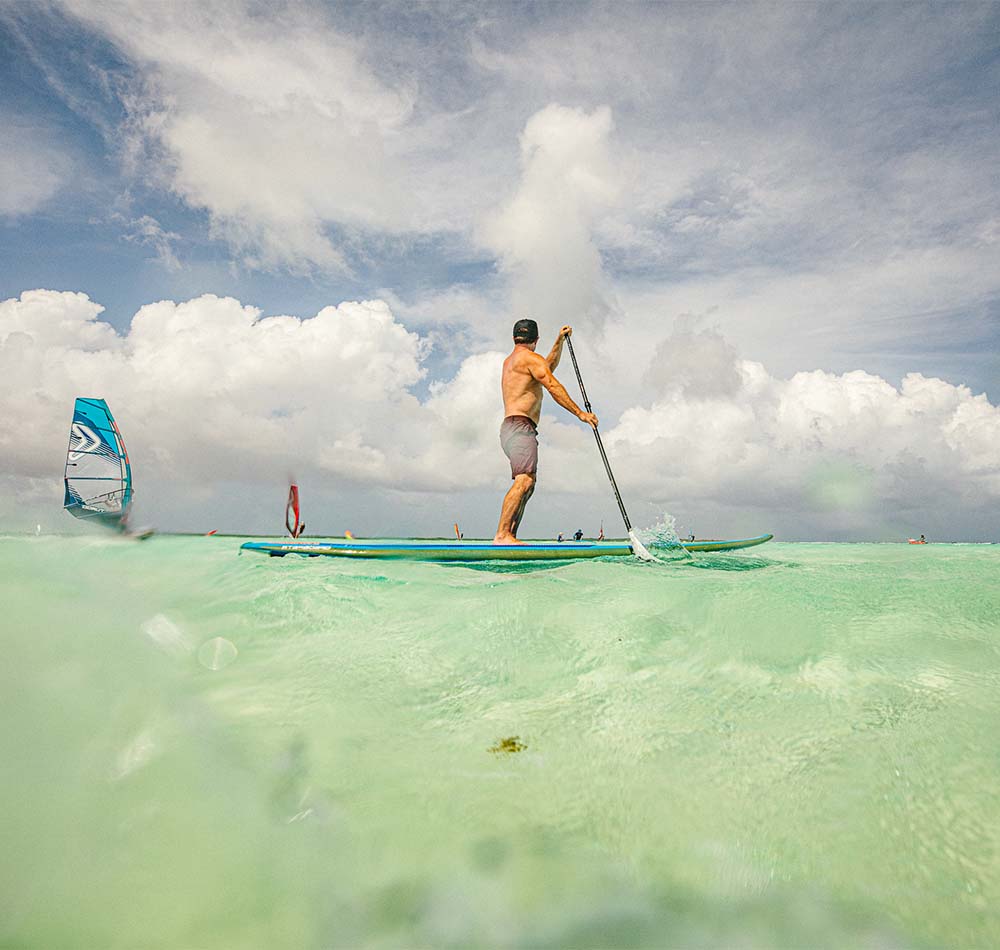
Take to the Waves
Bonaire offers as much adventure in and on the water as on land. If you think you love the ocean now, you'll fall in love all over again under our gentle waves.
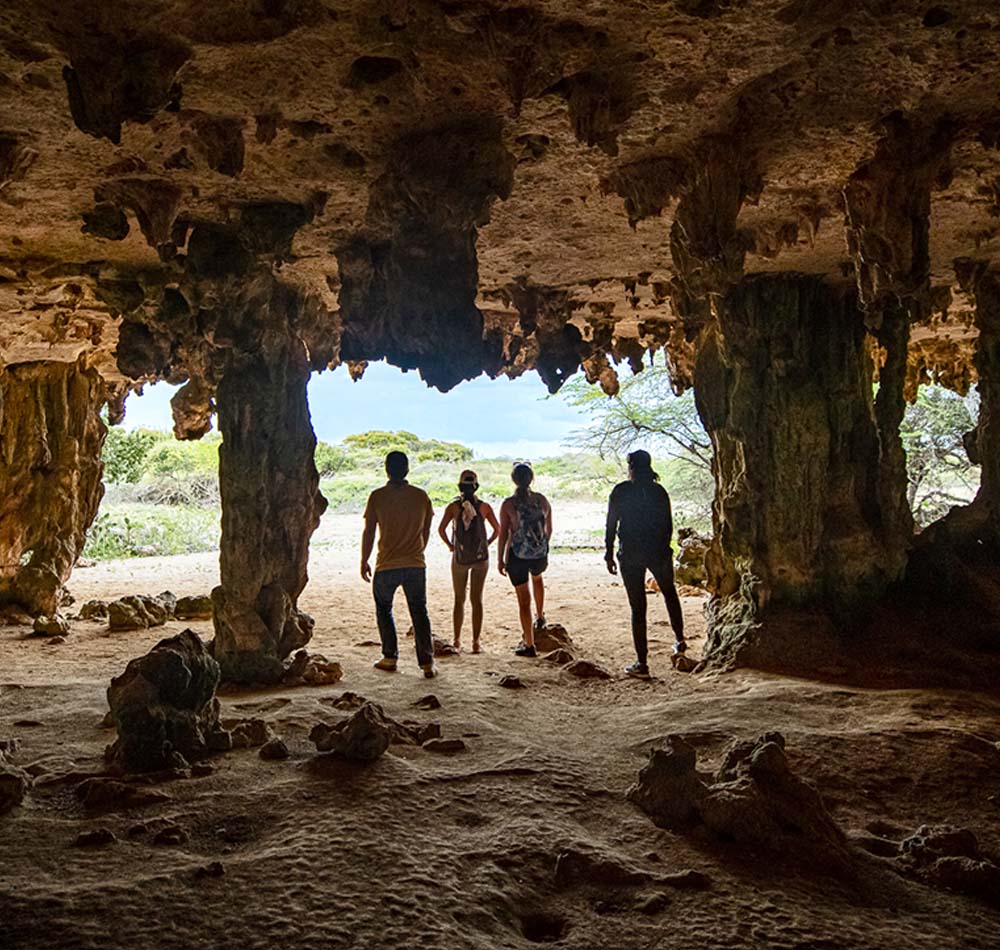
Your Eco Adventure Awaits
No matter your favorite outdoor activity, you'll enjoy it even more on Bonaire. Blessed with sunshine and warm trade winds nearly every day of the year, we naturally spend a great deal of time outside connecting with nature.
Getting Here
Visitors to Bonaire are required to pay a tourist entry tax of $75 per person, per visit. The funds from the tourist tax are invested to support education, infrastructure, tourism development and sustainability initiatives on the island.
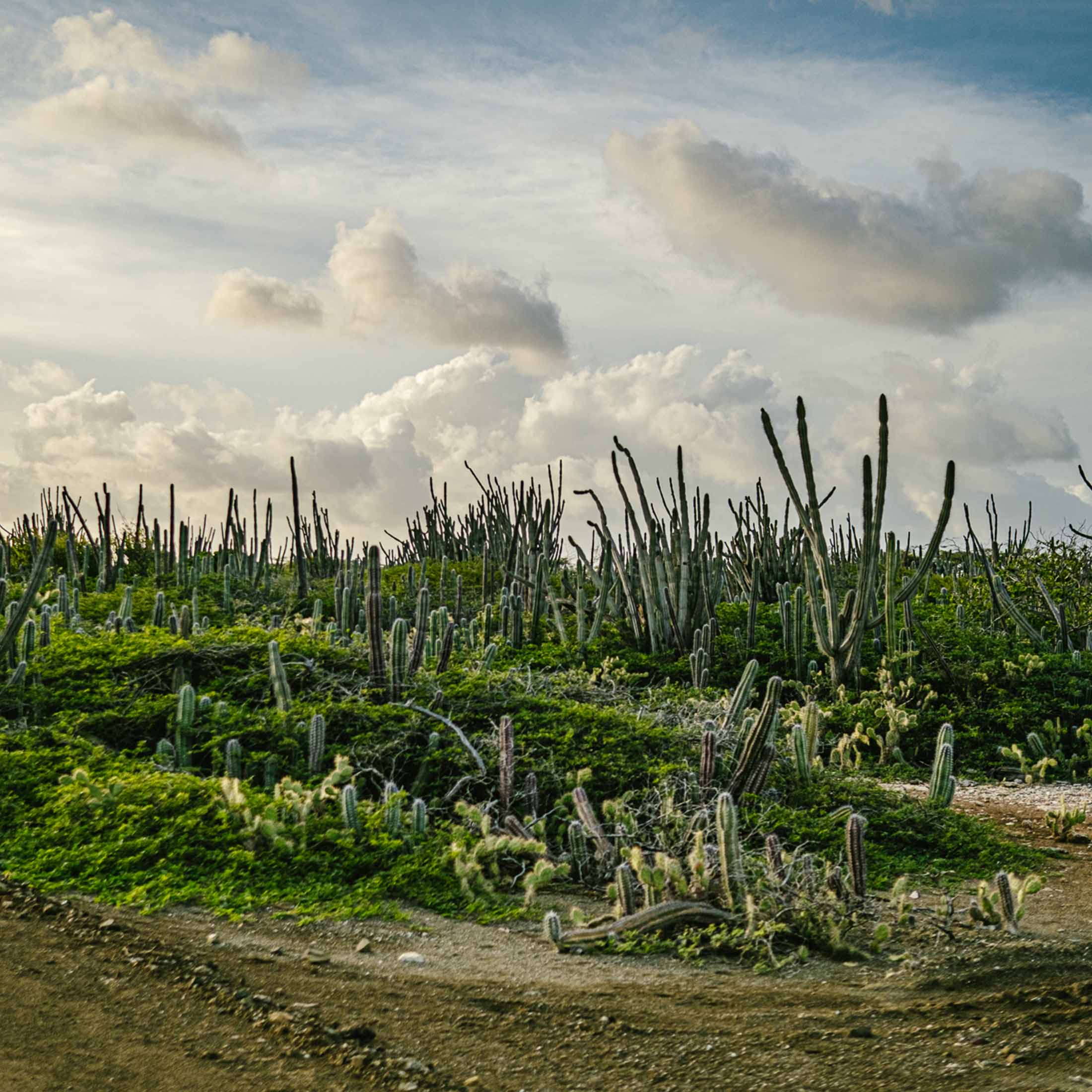
March 5, 2024
Explore the Road to Rincon
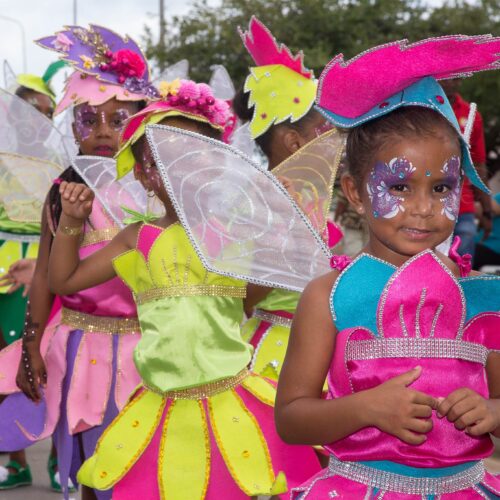
January 16, 2024
Carnival on Bonaire: An Explosion of Color, Rhythm, and Joy
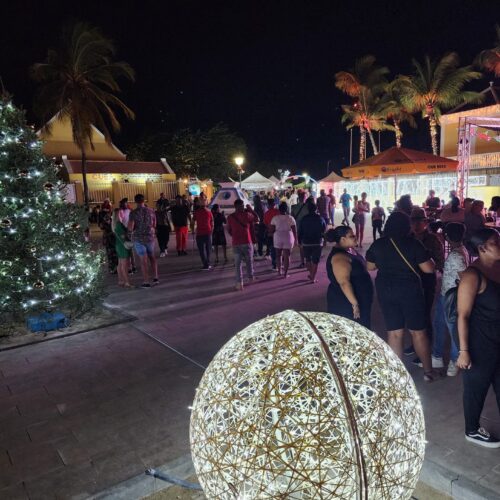
December 18, 2023
Holidays on Bonaire
No one knows Bonaire better than our people. So there’s no better way to get to know Bonaire than by reading the blogs they write about the island’s natural habitats, wildlife, history, cuisine, activities, language, and so much more.
Preserving Bonaire for Generations to Come
Bonaire is a true ecological marvel, so we work every day to preserve our piece of paradise.
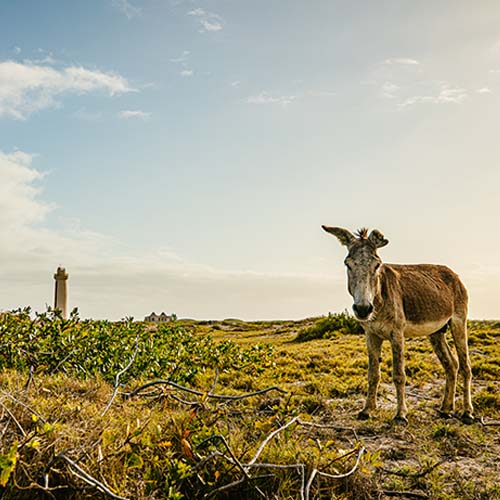
From beaches and dive sites to hotels and restaurants and everything in between, our interactive map can help you find whatever you’re looking for on Bonaire.
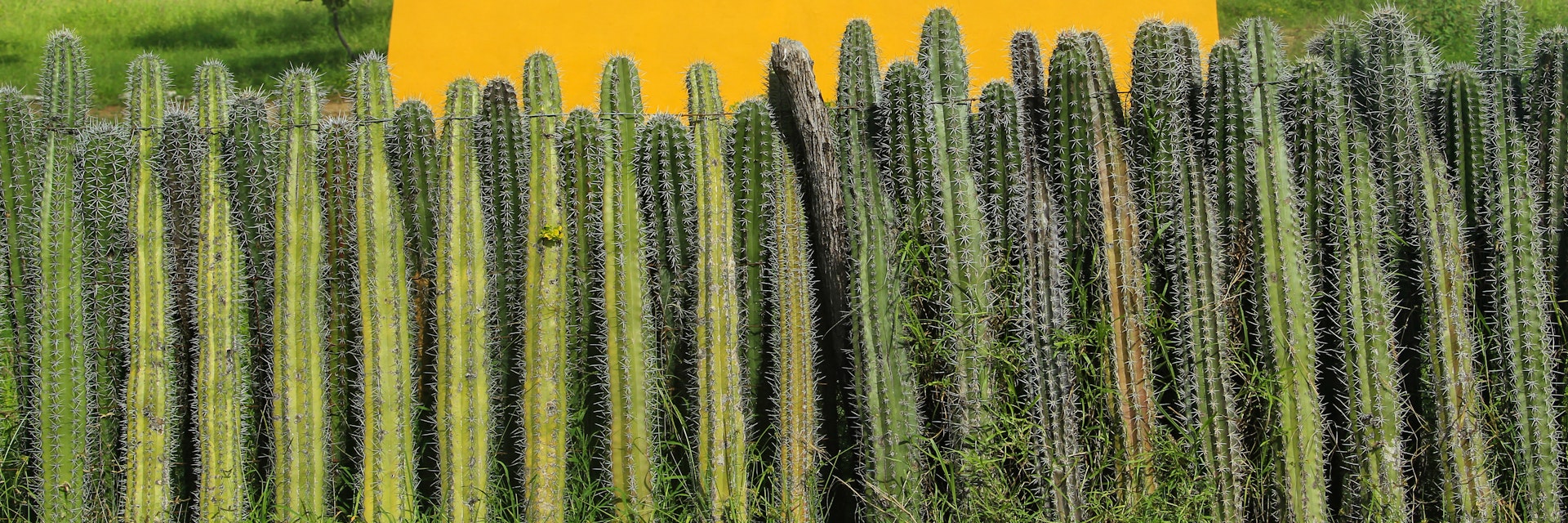
A small island with a desert landscape, Bonaire is not for everyone – but it is for divers and snorkelers who want to immerse themselves in that vibrant world under the sea. The beauty of Bonaire is that the coral reef, designated a national park, is just a few feet from the shoreline. Dozens of exceptional dive sites are easily accessible from the shore and teeming with life, making this island an independent diver's (and snorkeler's) paradise.
Attractions
Must-see attractions.
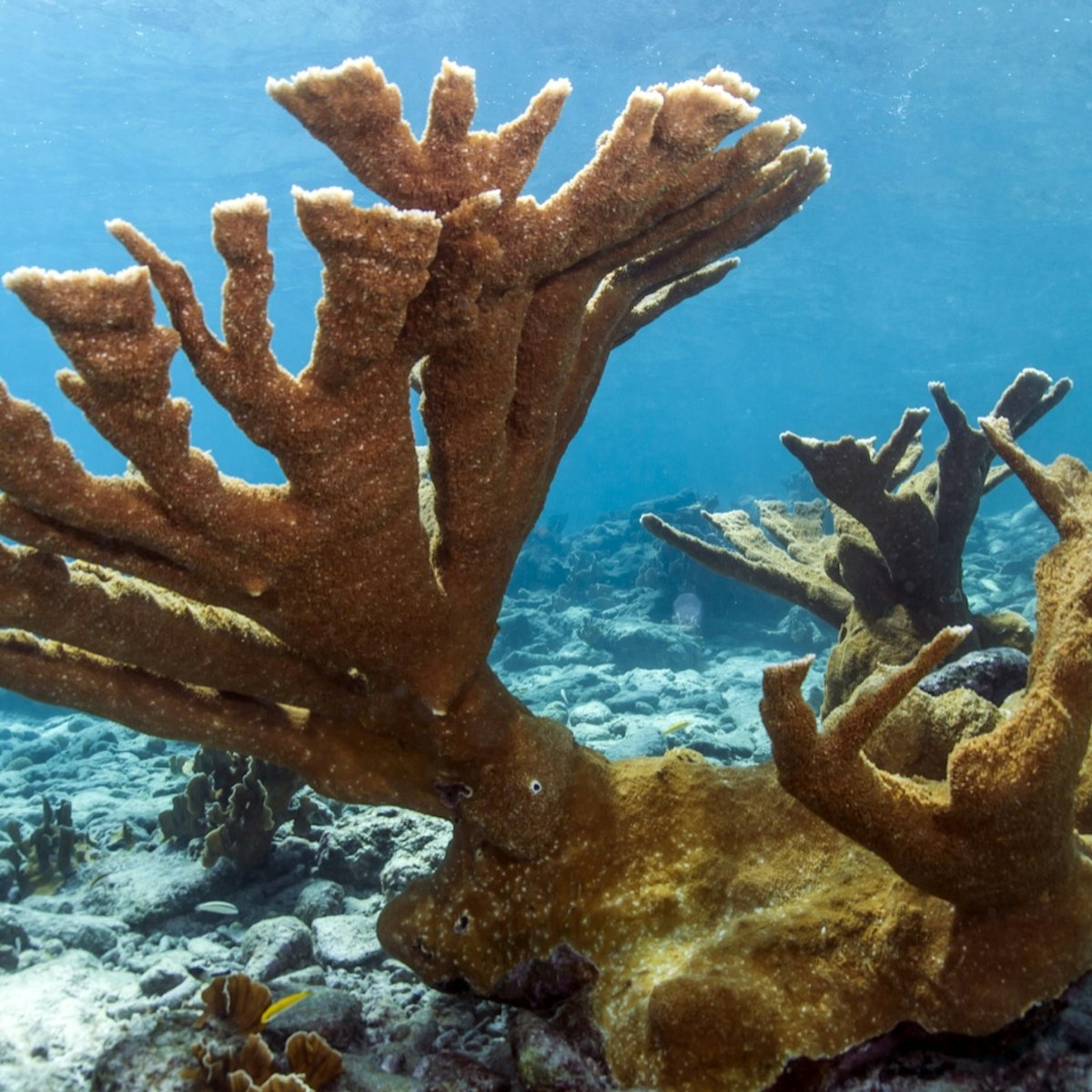
Bonaire National Marine Park
Bonaire National Marine Park is the island's star attraction, a unique and precious resource that allows divers and snorkelers to explore miles of…
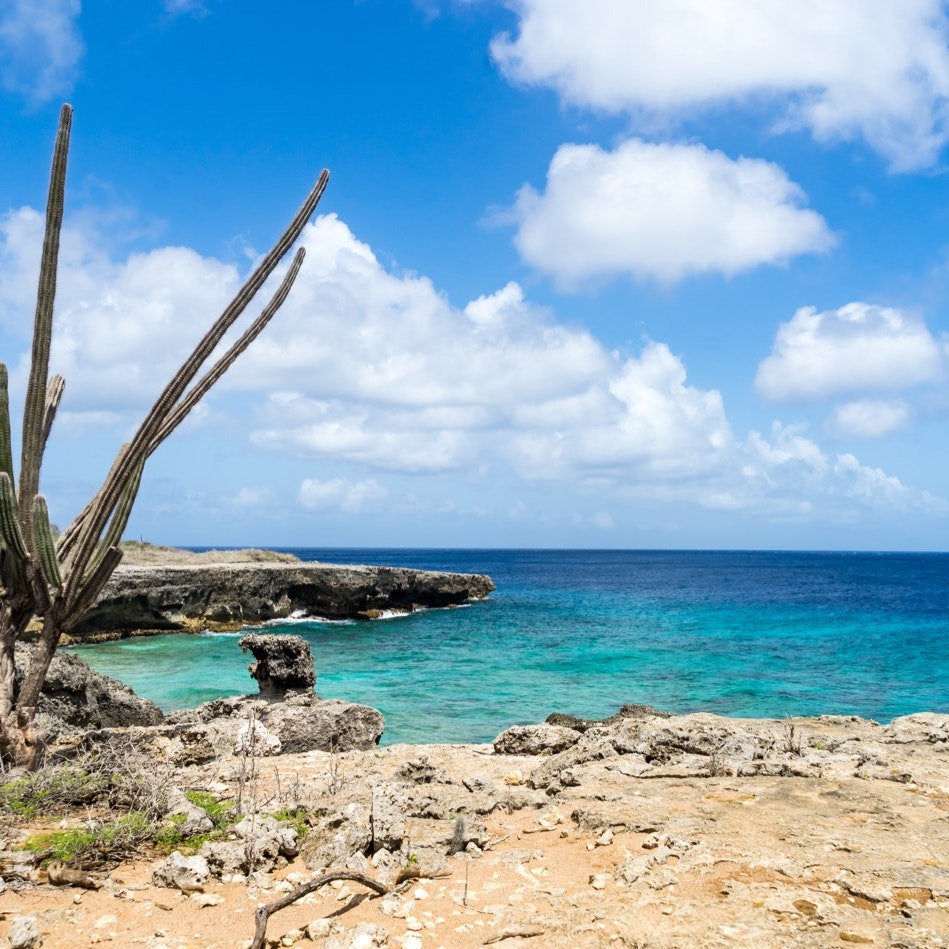
Washington-Slagbaai National Park
Comprising almost 20% of the island's area, this vast desert landscape is a fantastic place to explore on foot, by bike or by car (preferably 4WD). Stop…
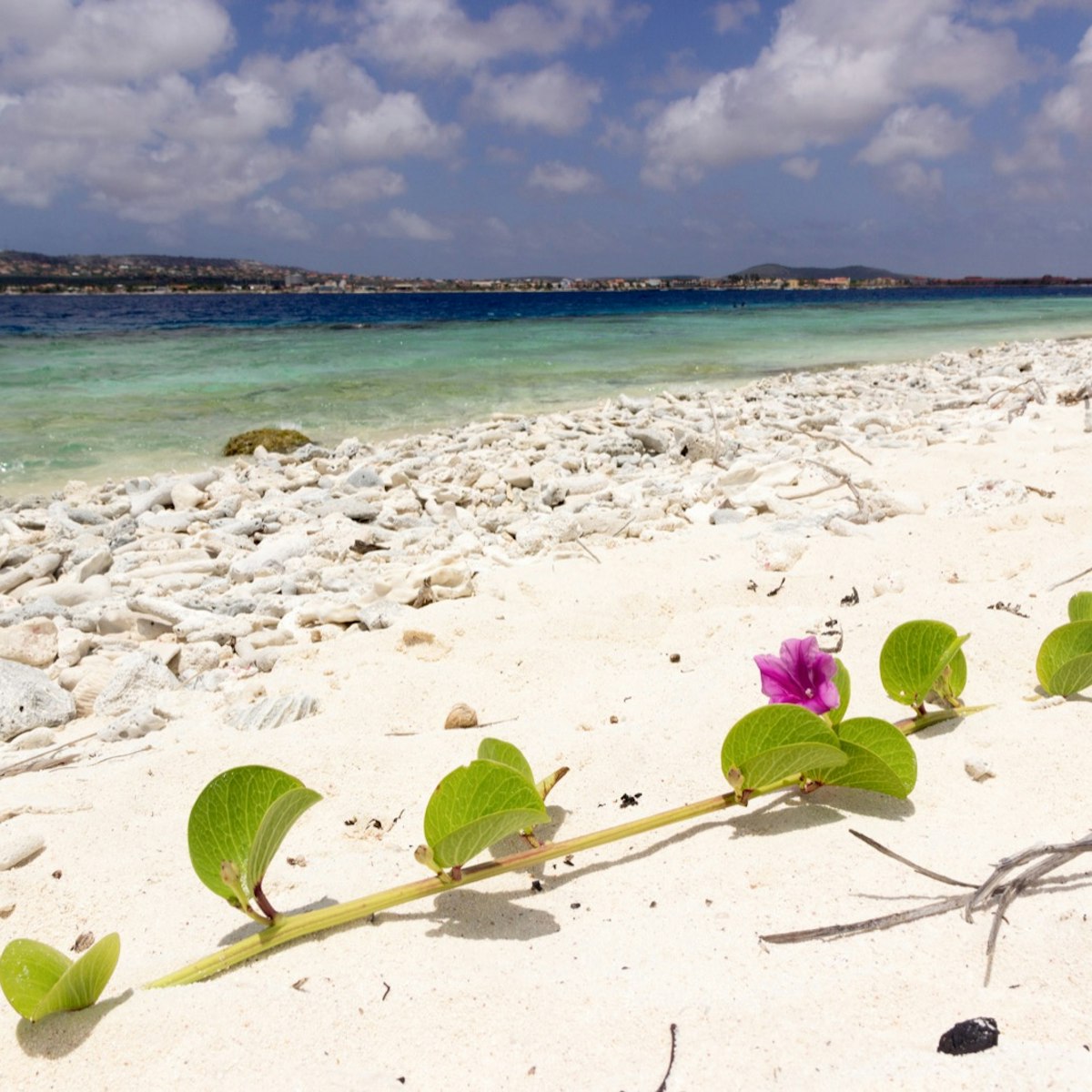
Klein Bonaire
About 1km off the coast of Kralendijk, this little deserted island is where you'll find the region's most attractive beach: No Name Beach. There are no…
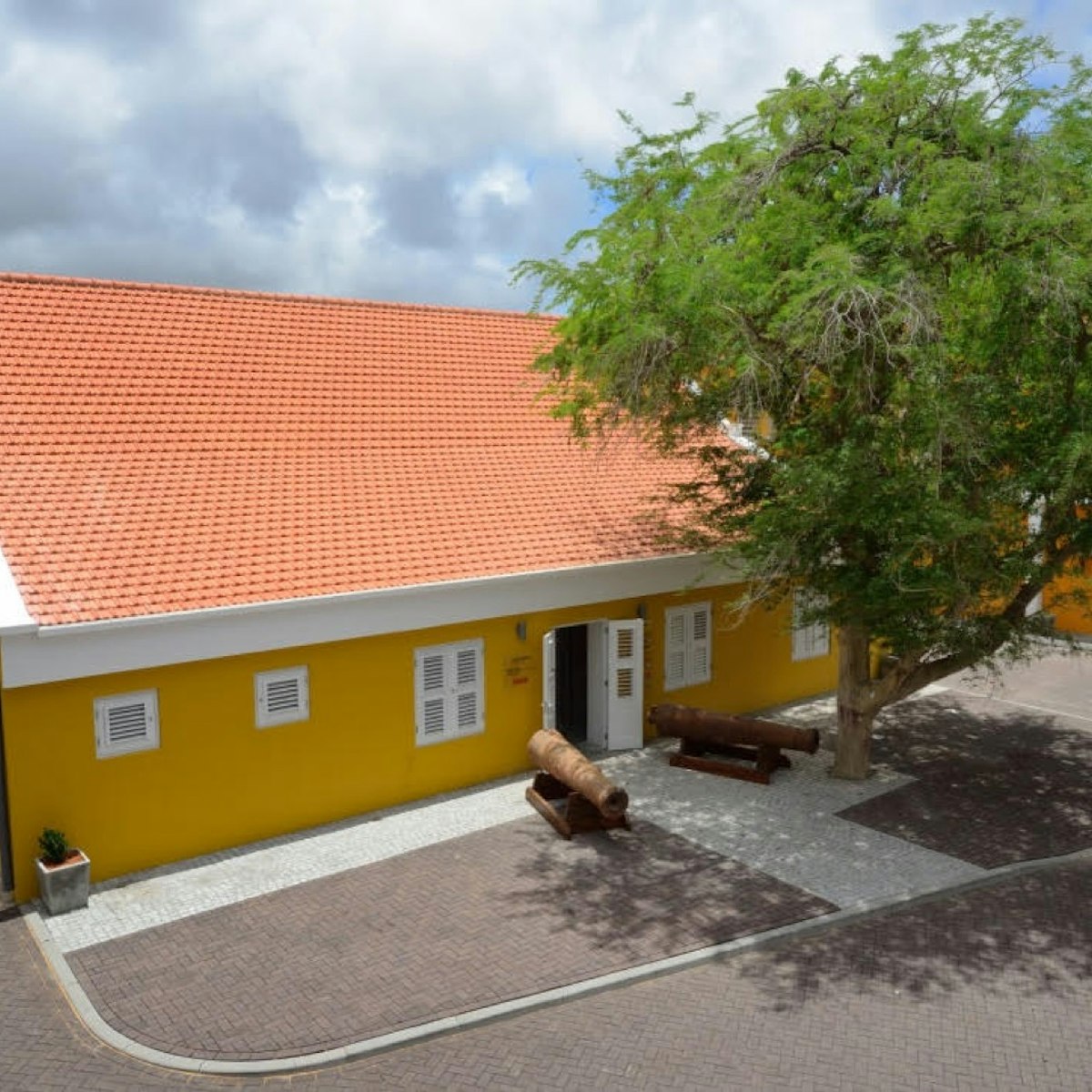
Terramar Museum
This small museum provides an overview of the history and archaeology of Bonaire. There's an assortment of artifacts, accompanied by audio clips that put…
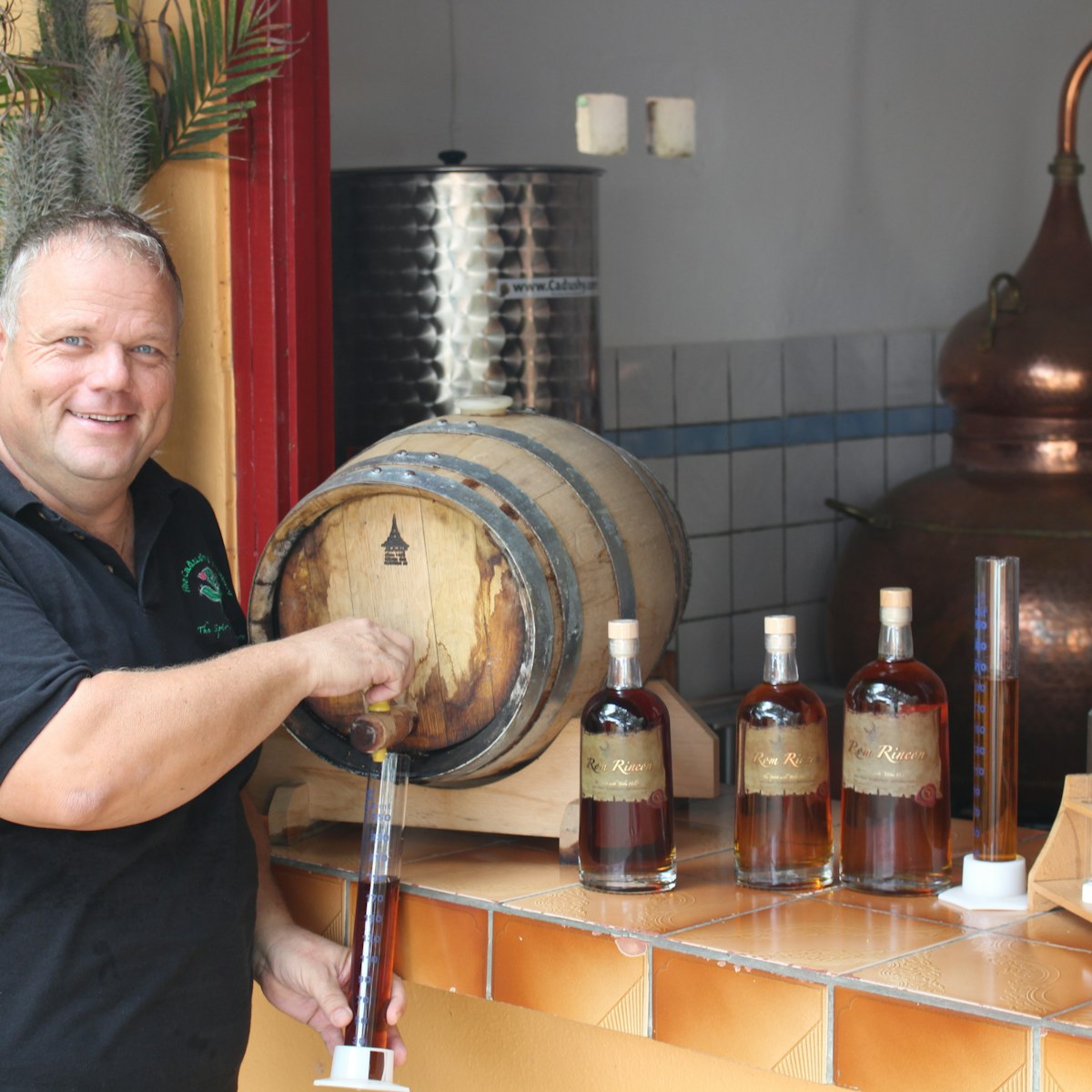
Cadushy Distillery
Drinking a cactus sounds like a prickly affair, but it's not as scary as it sounds. Pay a visit to this small-scale distillery to see how the prickly…
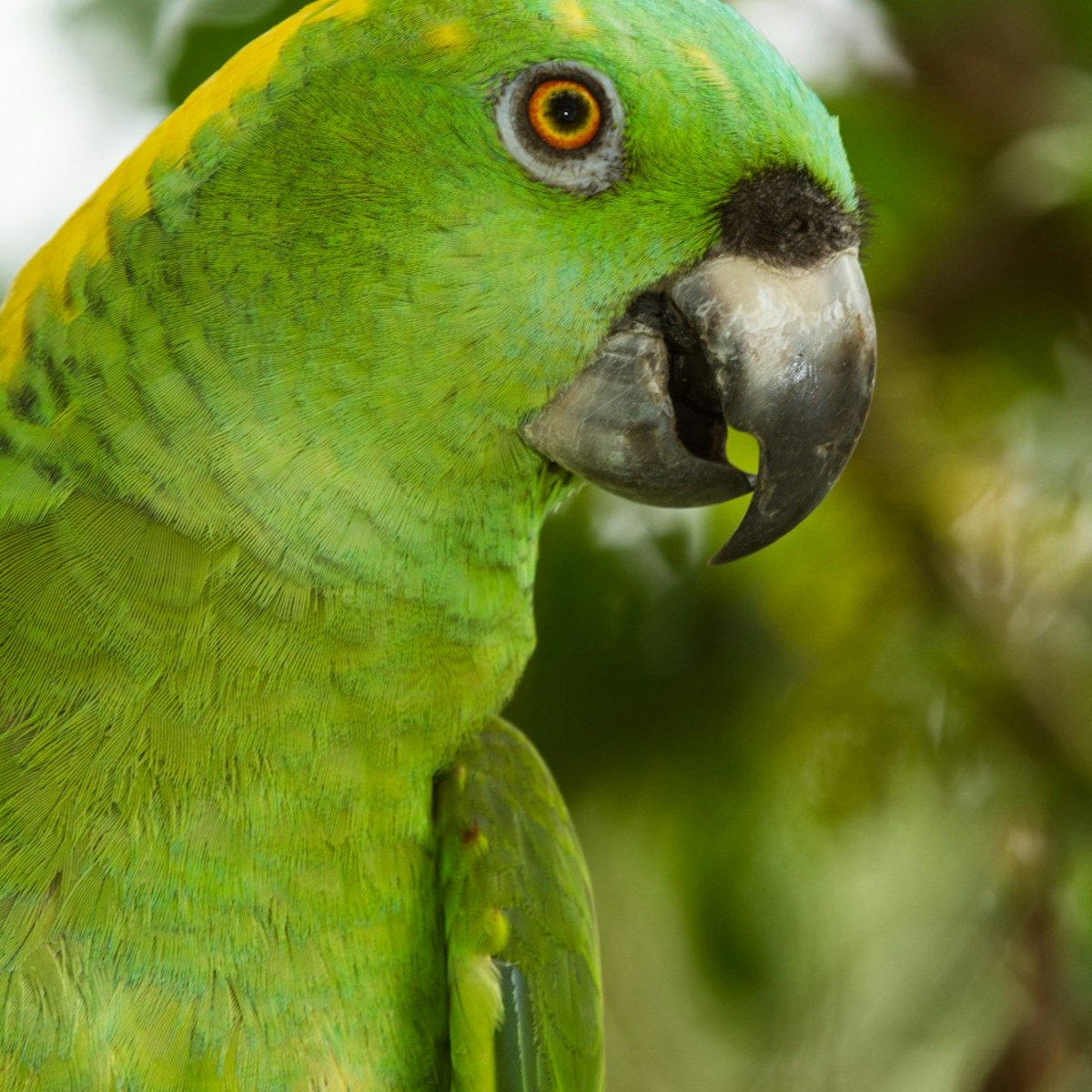
Echo Parrot Sanctuary
Bonaire's most beloved bird is the yellow-throated Amazon parrot, but the loquacious lora (as she is locally known) is threatened with extinction: there…

Mangazina di Rei
Located about 1.5km east of Rincon, the second-oldest stone building on Bonaire used to be a storehouse. Every week, enslaved people made the arduous 10…

Donkey Sanctuary Bonaire
Ever feel like you're surrounded by jackasses? You will in Bonaire, because the animals live free and wild on the island. The vast Donkey Sanctuary offers…
Latest stories from Bonaire
Filter by interest:
- All Interests
- Adventure Travel
- Art & Culture
- Beaches, Coasts & Islands
- Food & Drink
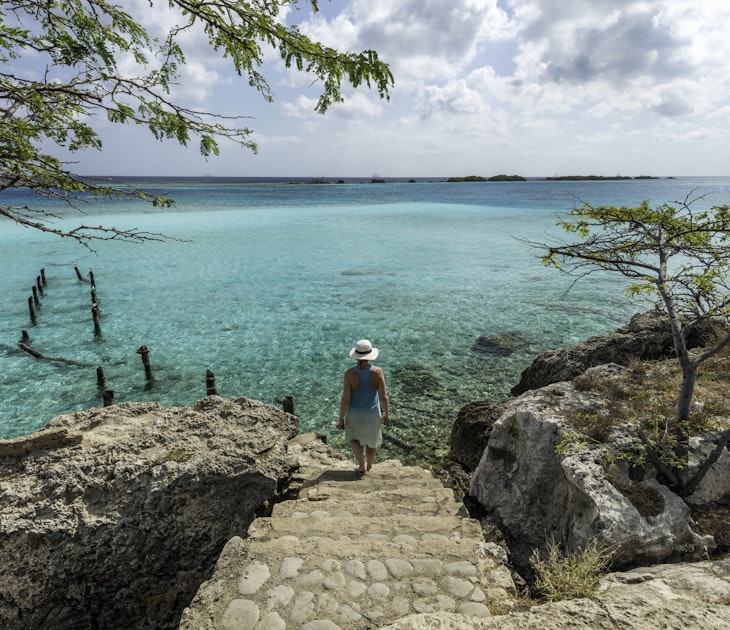
Tips & Advice
Aug 31, 2023 • 5 min read
It can be hard to pick between Aruba, Bonaire and Curaçao. Here’s how to decide which of the ABC islands is perfect for you.
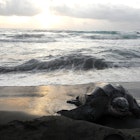
Oct 2, 2019 • 4 min read
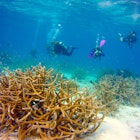
Mar 28, 2018 • 5 min read
in partnership with getyourguide
Book popular activities in Bonaire
Purchase our award-winning guidebooks.
Get to the heart of Bonaire with one of our in-depth, award-winning guidebooks, covering maps, itineraries, and expert guidance.
Bonaire Travel Guide
Courtesy of Getty Images |

15 Best Things to Do in Bonaire
Bonaire's best sights rest below the sea's surface, so strap on a scuba mask and start exploring. This island is most famous for its pristine reefs and its abundance of healthy, thriving marine life. But the protected waters of Bonaire
- All Things To Do

Bonaire National Marine Park Bonaire National Marine Park
U.S. News Insider Tip: The new nature fee now covers both national parks; you can buy it in advance online here . – Susan Campbell
One can’t speak about Bonaire’s popularity as a dive destination and a pioneer in protecting its reefs and surrounding waters without mentioning the name Capt. Don Stewart. Heralded as the father of dive tourism and the visionary behind marine conservation in Bonaire, Stewart was influential in the formation of Bonaire National Marine Park. You’ll see tributes to Stewart all over the island, including at the airport.

Bonaire Diving and Snorkeling Bonaire Diving and Snorkeling
U.S. News Insider Tip: Visitors can participate in the government’s new Reef Renewal program at places like Divi Flamingo Beach Resort & Casino, where you can adopt a staghorn coral to be planted in its house reef nursery. – Susan Campbell
Today, thanks to Bonaire's strict marine conservation programs, the island is one of the Caribbean's top diving and best protected marine destinations. Not only does the island boast more than 85 dive sites, Bonaire is also consistently ranked as one of the best shore diving destinations in the world (54 of the island’s dive sites are easily accessed from shore). Plus, thanks to its calm waters and clear visibility (more than 100 feet), Bonaire is suitable even for novice divers.

Kralendijk Kralendijk free
U.S. News Insider Tip: If you’re seeking Kralendijk nightlife, Cuba Compagnie hosts lively salsa parties every Thursday night. Or, follow your ears to the live music emanating after dark from Club Trocadero right downtown. – Susan Campbell
Kralendijk – Bonaire's tiny capital city – is a colorful commercial and cultural gathering spot on the seafront. It’s easily explored on foot with the aid of this self-guided walking tour from HopiBonaire, which you can download for free to your smartphone.

Popular Tours

Luxury snorkel trip on a spacious wooden schooner and local lunch
(71 reviews)
from $ 95.00

Klein Bonaire Marine Park Snorkeling Excursion
(208 reviews)
from $ 75.00

Bonaire Landsailing Adventures
(410 reviews)
from $ 79.00

Klein Bonaire Klein Bonaire
U.S. News Insider Tip: Water taxis to Klein Bonaire book up fast when a cruise ship is in port; visit the island on days when there are no ships. Check the schedule here . – Susan Campbell
A small, totally uninhabited island about half a mile west of Bonaire's mainland (you can see it in the distance from downtown Kralendijk ), Klein Bonaire is an unblemished oasis protected from development as part of the Bonaire National Marine Park . Klein means “small,” and this little satellite sister island is only accessible by water taxi. Though it boasts Bonaire’s absolute best expanse of blindingly white soft sand called No Name Beach, it offers no refreshment stands, changing areas or beach umbrellas, so you will need to pack your own water, food, reef-safe sunscreen, towels and any other supplies. But a visit to Klein Bonaire is not really about sunbathing – travelers are drawn to the island for its snorkeling and swimming opportunities. Klein Bonaire is ringed by a vibrant reef just offshore that’s a playground for sea turtles, rays and often dolphins, too.

Bonaire boat tours Bonaire boat tours
U.S. News Insider Tip: This island has a wealth of private charters with so many different types of vessels to choose from that you can easily customize your voyage at sea within your budget and desires. Start by checking out Bonaire Boat Charters . – Susan Campbell
Thanks to its clear waters and healthy reefs, Bonaire is heaven for scuba divers . But if you’re not certified or would prefer to explore the underwater world without an oxygen tank, you’ll find a bevy of boat tour operators equipped to satisfy a range of ages and interests.

Take a drive along the south coast Take a drive along the south coast free
U.S. News Insider Tip: As you’re driving, keep your eyes peeled for colorful food trucks along the side of the road like Cactus Blue , which features unique local fare like lionfish burgers on its lunch menu. – Susan Campbell
No trip to Bonaire is complete without taking a trip along the south coast to experience some of the island’s most surreal signature sights. Locally referred to as the “ Rondje Zuid ,” meaning the “South Round,” this sightseeing route begins downtown and heads south along the coast past Donkey Beach and Bachelor’s Beach to the famous salt mountains, which are flanked by pink salt pan lakes now run by Cargill. Also of note on this route is the Willemstoren Lighthouse. Built in 1837, it still operates today, though it has been modernized to run on solar power. Beside it sits the ruins of the original lightkeeper’s house; the scene makes for excellent photographs by the sea.

Pekelmeer Flamingo Sanctuary Pekelmeer Flamingo Sanctuary free
U.S. News Insider Tip: You can also often spot small colonies of flamingos at Gotomeer, a salt marsh in the north end of the island. – Susan Campbell
As one of only four designated flamingo breeding grounds in the world, southern Bonaire's Pekelmeer Flamingo Sanctuary is a sight to behold – but you'll need binoculars. To protect Bonaire's national bird, tourists are not actually allowed inside of the reserve. Luckily, these bright pink locals can be viewed from the road above the sanctuary and nearby Pink Beach. Upward of 10,000 Caribbean flamingos can be seen every year during breeding season from January to July, so you'll get the best views during these months. Once the breeding season is over, some birds remain, while others migrate to Venezuela to feed for the remainder of the year.

Lac Bay/Sorobon Beach Lac Bay/Sorobon Beach
Though diving is Bonaire's main allure, those seeking a quintessential Caribbean experience won't be disappointed by Lac Bay’s Sorobon Beach. With its stunning views, warm shallow aqua waters and brilliant white sand, sun-seekers will find ample amenities there like lounge chairs, beach bars and restaurants. But the real draw to this end of the island is the world-class conditions for windsurfing. Situated on the eastern side of the island, Lac Bay's steady trade winds and limited boat traffic provide idyllic conditions for both novice and seasoned windsurfers (the farther you venture out in the bay, the more challenging the conditions become).
There are numerous on-site windsurfing centers where you can rent gear or sign up for lessons, but there are few places where you can learn the sport from former world champions! Frans Paradise is one of them. Run by Bonaire’s most famous windsurfing legends, Tonky and Taty Frans — brothers who put the island on the world sports map with their decades of freestyling feats – this is the spot to take lessons.

Chill and Grill Catamaran Tour in Bonaire
(322 reviews)
from $ 115.00

Catamaran Snorkel & BBQ Sail (cruise friendly)
(111 reviews)
from $ 105.00

Private Half day REVOLVE Boat tour in Bonaire
(16 reviews)
from $ 695.00

Take a kayak tour with the Mangrove Information Center Take a kayak tour with the Mangrove Information Center
U.S. News Insider Tip: Apply your reef-friendly sunscreen and bug repellent on shore; you are not allowed to do so once in the kayak. – Susan Campbell
Established in 2002, the Mangrove Information Center is dedicated to protecting and educating visitors about Bonaire's unique mangrove ecosystem. It offers visitors the chance to take guided kayak tours through the mangroves at Lac Bay , which are some of the best-preserved forests of their kind in the Caribbean.

Rincon Rincon free
U.S. News Insider Tip: Most island tours make a stop at the distillery here, but you are far better off to take the time and explore this region on your own to experience the true local culture. – Susan Campbell
You’ll find Bonaire’s oldest settlement hidden away in a deep valley in the interior of the island, about 10 miles northwest of Kralendijk . It was established there by the Spanish in the 16th century to avoid detection by passing enemy ships.

Cadushy Distillery Cadushy Distillery free
U.S. News Insider Tip: “Drinking a cactus,” as the distillery invites you to do, is a lot more enjoyable than it sounds. It’s quite delicious, and no needles are involved . – Susan Cambpell
Founded in Rincón in 2009 by Dutch entrepreneur Eric Gietman, this unique boutique distillery is a must-visit for anyone seeking to sample authentic local spirits. Though its original claim to fame was being the first in the world to use local cactus as a base for its liqueurs, Cadushy Distillery has since expanded its offerings and now produces rum, vodka, whiskey and gin. Visitors can sample the distillery’s unique liqueurs and liquors for free in the enchanting tasting garden.

Washington Slagbaai National Park Washington Slagbaai National Park
A bird-watcher's paradise, Washington Slagbaai National Park's nearly 14,000-acre semi-desert, cacti-studded protected oasis plays host to more than 200 different types of birds. The park also offers ample hiking trails suited for both amateur and expert trekkers. Pick up all the information you need at the entrance visitor center, which also houses a small museum.
Hikers can choose between three routes. The Lagadishi Walking Trail, which begins at the park's visitor center, is an easy two-hour walk that provides a complete snapshot of Bonaire's native flora and fauna. The 45-minute Kasikunda Climbing Trail – which also begins at the park's visitor center – is a steep trek up a volcanic hill, but the views of north Bonaire are worth the effort, according to travelers. Lastly, for a hike that offers unparalleled views of neighboring Curaçao – and on clear days, the Santa Ana Hill on Venezuela's Paraguaná Peninsula – take the Subí Brandaris Trail, considered the most challenging hike in the park. Note that this hike does not start at the visitor center.

Bonaire Landsailing Adventures Bonaire Landsailing Adventures
U.S. News Insider Tip: A bandana can be handy to bring because it can be very dusty in the arid outback, especially when sailing quickly so close to the ground. Sunglasses to protect your eyes are a good idea, too. – Susan Campbell
Though these three-wheeled carts (called Blokarts) resemble a sailboat, you needn’t know how to sail to operate one. In fact, no experience is necessary. What you do need to enjoy this unique mode of transportation are strong winds and very flat track surfaces – and the east coast of Bonaire has plenty of both. As you race around the sand using the handlebars to steer, winds can push the Blokart of speeds up to 25 mph. You control the speed with a rope, so you can have as wild a ride or as peaceful a journey as you like.

Semi Submarine Boat Experience to Klein Bonaire
(23 reviews)
from $ 32.50

Fishing Activity with the Fishing Dutchman in Caribbean
from $ 550.00

Donkey Sanctuary Tour with a Local Guide
(19 reviews)
from $ 68.00

Piedra So Golf Course Piedra So Golf Course
U.S. News Insider Tip: Expect to share this unique course with wild goats, donkeys and iguanas, and yes, they all get the right of way! – Susan Campbell
This 72-par course with 18 artificial greens bills itself as an ecologic golf course, and its spectacular setting by the sea surrounded by cacti is worth a visit just for the scenery. But if you do golf, you’ll find it an 18-hole course unlike any other you might have played before; it is wild.

Donkey Sanctuary Bonaire Donkey Sanctuary Bonaire
U.S. News Insider Tip: You’ll want to wear closed-toed, sturdy shoes when you visit. The grounds can be mucky, and flip-flops offer little toe protection should one of the four-legged residents mistakenly step on your foot! – Susan Campbell
After you've explored the island's underwater life, dry off and direct your attention to the Donkey Sanctuary Bonaire. Established in 1993 by Dutch Nationals Marina Melis and her husband Ed Koopman, the sanctuary has provided a safe and peaceful oasis for hundreds of orphaned, injured and ill donkeys that were not able to fend for themselves in the wild for multiple decades.

Explore More of Bonaire

Best Hotels

When To Visit
If you make a purchase from our site, we may earn a commission. This does not affect the quality or independence of our editorial content.
Recommended
The 28 Best Water Parks in the U.S. for 2024
Holly Johnson|Timothy J. Forster May 8, 2024

The 18 Best Napa Valley Wineries to Visit in 2024
Lyn Mettler|Sharael Kolberg April 23, 2024

The 25 Best Beaches on the East Coast for 2024
Timothy J. Forster|Sharael Kolberg April 19, 2024

The 50 Best Hotels in the USA 2024
Christina Maggitas February 6, 2024

The 32 Most Famous Landmarks in the World
Gwen Pratesi|Timothy J. Forster February 1, 2024

9 Top All-Inclusive Resorts in Florida for 2024
Gwen Pratesi|Amanda Norcross January 5, 2024

24 Top All-Inclusive Resorts in the U.S. for 2024
Erin Evans January 4, 2024

26 Top Adults-Only All-Inclusive Resorts for 2024
Zach Watson December 28, 2023

Solo Vacations: The 36 Best Places to Travel Alone in 2024
Lyn Mettler|Erin Vasta December 22, 2023

26 Cheap Beach Vacations for Travelers on a Budget
Kyle McCarthy|Sharael Kolberg December 4, 2023

- Search Please fill out this field.
- Manage Your Subscription
- Give a Gift Subscription
- Newsletters
- Sweepstakes
- Destinations
- The Caribbean
How to Plan the Perfect Trip to Bonaire
Bonaire is home to the world's oldest marine park, epic diving spots, and luxury beach hotels.
:max_bytes(150000):strip_icc():format(webp)/IMG_9924-Meagan-Drillinger-2000-b5b1ef20b8b940e397c81373504ecbed.jpg)
Best Hotels and Resorts
Best things to do, best restaurants.
- Best Time to Visit
How to Get There
How to get around.
Courtesy of Harbour Village Beach Club
Just 50 miles off the coast of Venezuela, shielded from the Caribbean's hurricane belt, lies the always sunny, rugged, and beautiful Bonaire. Part of the trio of Dutch islands in the Caribbean, Bonaire is the B in the ABCs, which also includes Aruba and Curacao.
The island is all about adventure, thanks to its wild, desert landscape and spectacular coral reef that sits just offshore. In fact, the reef has been designated a national park and is known for heaping handfuls of dive sites, making Bonaire one of the best diving destinations in the Caribbean.
"Bonaire is a dream destination for most uncommon travelers," says Stephen Bennett, a Caribbean travel expert and co-owner of Uncommon Caribbean . "I'm talking about the kind of people who purposely avoid crowds and...favor adventures that feed an insatiable cultural curiosity."
Forget big brand-name hotels and tourist trap attractions — overtourism has yet to sink its teeth into the sandy streets of Bonaire.
"The desert island is home to the Caribbean's first and oldest marine park, as well as one of the region's top coral reef sustainability programs, the Reef Renewal Foundation ," adds Bennett. "As such, undersea treasures and adventures here are simply off the charts. The island's deep commitment to the environment and sustainability makes Bonaire particularly ideal for communing with nature, both above and below the waves."
dbvirago/Getty Images
Windhoek Resort
"This cozy boutique property was designed by celebrated Dutch architect Piet Boon," says Bennett. "The Piet Boon brand is one that embodies the 'if you have to ask' aesthetic. At the same time, though, the property is anything but hoity-toity."
Pure Villa Karibuni
"Bonaire's numerous luxury villas are also sure to please most travelers," says Bennett. " Pure Villa Karibuni , another Piet Boon creation, is particularly stylish, comfy, and well-appointed."
The Bellafonte
A luxury oceanfront hotel with just 22 rooms, The Bellafonte has some of the best views of the sparkling turquoise sea. An on-site restaurant serves all-day dining, while the resort offers complimentary yoga twice a week, an oceanfront plunge pool, and diving facilities on site.
Harbour Village Beach Club
This beautiful resort has four acres of powder-soft sand and direct beachfront access. The luxury rooms here come with views of the marina or gardens, and guests can enjoy activities like PADI-certified scuba instruction, kayaking, or a spa treatment.
Van der Valk Plaza Beach & Dive Resort
An all-inclusive resort with a beautiful oceanfront pool and a private marina, this is one of the best hotels on Bonaire. Guests can enjoy diving and snorkeling, an on-site spa, yoga, and beachfront dining.
Sailboat Stay
"For a truly unforgettable, decidedly uncommon, and more affordable option, why not opt for a sailboat stay?" suggests Bennett. "Airbnb lists a few sailboat stays on Bonaire starting at just $64 per night."
GanzTwins/Getty Images
Water Sports
Bonaire is all about action and adventure, most of which is centered around water activities. From kayaking and windsurfing to kiteboarding, snorkeling, diving, fishing, and beyond, there's not much you can't do on the water here.
Kralendijk is the capital of Bonaire, known for its colorful architecture and charming restaurants. From Kralendijk, you can hop on a water taxi to Klein Bonaire, a deserted islet that's part of the gorgeous Bonaire National Marine Park.
Washington Slagbaai National Park
Covering nearly 20 percent of the island, this spectacular desert national park is one of the best places on Bonaire for outdoor adventure. It has two driving routes and two hiking trails, as well as stunning remote beaches, flamingo-peppered salt pans, and plenty of spots for snorkeling along the way.
Stephan Kogelman/Getty Images
Bonaire Landsailing
According to Bennett, while Bonaire is all about the sea, the land-based options should not be discounted. He recommends Bonaire Landsailing Adventures , "particularly for those with a need for speed." Climb aboard a sail-powered go-kart for an adrenaline-filled race across the desert island.
The Cadushy Distillery
"If you're a spirits connoisseur, a stop at The Cadushy Distillery is a must," says Bennett. "This is where you'll find the world's only liqueur made from cactus. Bonaire is, after all, a desert island."
Hang Out Beach Bar Jibe City
Nothing says you're in the Caribbean like the vibe at Hang Out Beach Bar . Bright colors, toes in the sand, strong cocktails, and freshly caught fish — what more could you want? The venue often hosts live music and puts on a table barbecue every Thursday evening.
Perched on the promenade in Kralendijk, At Sea is a local favorite and one of the best fine-dining restaurants on the island. The à la carte menu is full of fresh goodies, from caviar to seafood risotto, but it's the four-, five-, and six-course "surprise menu" that really shoots this to the top of foodies' must-try lists.
Sebastian’s
The views dial up the elegance at this otherwise casual waterfront restaurant. While the menu swings Mediterranean most days of the week, the restaurant is known for its Italian Night every Sunday, featuring homemade pizzas and pasta. Be sure to make a reservation for sunset.
Chefs Bonaire
Dutch chefs Han ten Winkel and Mark Tromop take diners on a five-course culinary journey. The intimate experience takes place within the Bamboo Bonaire Boutique Resort, where the chefs not only do the cooking, but serve each guest as well.
Ocean Oasis
Barefoot and breezy is the vibe at Ocean Oasis . This beach club's aesthetic is all about swaying palms, billowing white drapes, and thatched palapas. Feast on stuffed crab rolls or fresh local fish by the sea for lunch, or splurge on the decadent surf and turf when the sun goes down.
Heather Tillema/500px//Getty Images
Best Time to Visit
Bonaire is one of those places where anytime is a good time to visit. That's especially rare for the Caribbean, but Bonaire is fortunate enough to sit outside the hurricane belt.
"If you like warm, sunny days with little chance of rain, then anytime is the best time to visit Bonaire," says Bennett. However, he says his personal favorite time to visit is contingent on what's scheduled on the local events calendar.
"I'd highly recommend the pre-Lenten period, usually in February (a.k.a. Carnival time on Bonaire)," he says. "The street party here isn't as loud, raucous, or huge as the more famous West Indian Carnival celebrations in Trinidad and Tobago, Martinique, or Guadeloupe. At the same time, though, few celebrations offer a more fun and exhilarating way to vibe with the culture."
Bonaire has one international airport, called Flamingo International Airport. It receives direct flights from Miami, Atlanta, Houston, and Newark. Bonaire is also a port of call for cruise lines, including Carnival, Celebrity, Holland America, Norwegian, Princess, and Royal Caribbean, among others.
Visitors to Bonaire are required to pay a tourist entry tax of $75 per person, per visit.
Alexis Gonzalez/Getty Images
Bonaire is a small island, covering roughly 111 square miles. It's three to seven miles wide and 24 miles long. Twenty percent of the island is also covered by the Washington Slagbaai National Park, an expansive desert landscape that's prime for adventures.
"You'll want to rent a car here, but not just any car," says Bennett. "A Jeep, truck, or SUV with high ground clearance is recommended and required for trekking around the incredible Washington Slagbaai National Park."
He also notes that if you don't drive stick, you'll want to reserve your rental car well in advance because automatic vehicles are scarce on Bonaire.
If you plan on lounging at the hotel and only shuttling around for dinners, then taxi is the quickest way to travel. Bonaire does not have public transportation, nor does it have Uber or Lyft. Taxis, however, are safe and do have fixed rates.
Related Articles
- Cruise Tips
- Western Caribbean Ports
- Eastern Caribbean Ports
- Southern Caribbean Ports
- Cruise Weather
- Attractions
- Central America
- New England
- South America
- All forecasts
- Satellite Maps
- Eastern forecasts
- Western forecasts
- Southern forecasts
- Hurricane season
- Monthly weather
- Air temperatures
- Water temperatures
- Rainfall by month
Bonaire Travel Tips and Visitor Information
Bonaire in the southern Caribbean has a small number of cruise and resorts visitors every year. It’s mainly known for snorkeling and scuba diving.
Bonaire is part of the ABC islands of Aruba, Bonaire and Curaçao. They have the reputation of lying somewhat safely below the Caribbean hurricane belt. They also are arid most of the year.
But they still face occasional weather onslaughts, such as the category 5 Hurricane Felix in September 2007. Reputations go only so far.
The island of Bonaire lies to the east of Aruba and Curaçao and close to the coast of Venezuela.
Among all major Caribbean destinations, Bonaire is 24th in total visits, 25th in stopovers and 22nd in cruises, according to the Caribbean Tourism Organization (CTO). About the same number of people visit the island on cruises and stay overnight in hotels.
Travel Tips in Brief
Bonaire is an occasional stop on Panama Canal and southern Caribbean cruises. It usually is a port of call in combination with either Aruba or Curaçao.
Overnight visitors who want to avoid bad weather during the Caribbean hurricane season go to Aruba, Bonaire and Curaçao. Aruba is the most popular, followed by Curaçao and then Bonaire.
Among the three, Bonaire is the least commercialized with the smallest crowds. This quality may appeal to Caribbean visitors who want to escape the heavy commercialization of other islands.
The island attracts Dutch citizens in part because it is a “special municipality” of the Netherlands. It also is known for scuba diving spots.
Bonaire Attractions
Kralendijk is both the capital city and the main cruise port of the island. The colorful streets and buildings reflect the same Dutch architecture as Oranjestad in Aruba and Willemstad in Curaçao along with their own unique Caribbean influences.
Downtown walking tours from excursion operators that emphasize history and culture cost about $30 per person. Tours of the entire island start at more than $40.
Other unique attractions include diving and snorkeling because the waters off the coast of the island have been legally protected as a marine park since 1979. The island has 86 official dive sites and 53 shore dive sites that are easily accessible.
Snorkeling shore excursions cost about $40 or more while scuba diving excursion start at more than $150 per person.
The desert-like Washington/Slagbaai National Park has hikes through spare landscapes of cacti, iguanas and divi-divi trees. Bonaire is about 24 miles long and about 4 miles wide on average, making it small enough for fit visitors to tour most of the island by bike.
The island has 22 noteworthy beaches. The nearest beaches to the cruise port are Coco, Bachelor’s, Te Amo and Flamingo, along with the unusually named Chachacha. It is named after a local woman.
Most of these five beaches require a long walk or short drive to reach them, except for a quick walk to the small Chachacha. Shore excursion operators often take cruise visitors to Coco.
Tourism / When to Go
Overall climate conditions are tropical, but the conditions are softened by northeast trade winds.
The average daytime temperature is 82 degrees Fahrenheit. Average rainfall is about 20 inches, which is more than Aruba but less than Curacao. That makes the island semi-arid, with sparse vegetation.
It rains only about one inch per month from February through September. They are the best months to visit for beach lovers. Then average rainfall increases to three to four inches a month from October through December.
December is a popular month for visitors anyway because they want to escape cold northern winters.
Currency / Tipping
Like all of the islands in the Netherland Antilles, the currency is the Netherlands Antilles Guilder. U.S. current and major credit cards are widely accepted. For stopover visitors, the departure tax is $32US per person. Tipping is 10-15 percent on average for hotels, taxis, restaurants and tour operators.
Culture / Geography
The dominant language is Papiamento, a Spanish-Portuguese-Dutch-English dialect. The economy depends strongly on tourism, oil refining and offshore financing.
The geography is hilly with some volcanic formations in the interior.
Sources / More information
Bonaire cruise port guide.
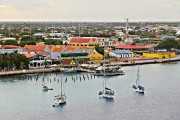
Bonaire Travel Information
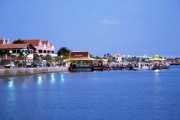
11 Top Bonaire Tourist Attractions
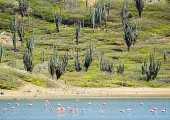
Cruise Liners That Visit Bonaire
Top bonaire shore excursions, bonaire monthly weather averages: rain, temperatures, best bonaire beaches for cruise visitors, best and worst times to visit bonaire, 5 caribbean cruise tips, internet service on cruise ships, western caribbean weather guide, do you need a passport, western caribbean cruise guide.
- Cruise Ports
- North America
- South America
- Restaurants
- Privacy Policy
ACoupleForTheRoad-BonaireTips The island of Bonaire is best known for its’ world-class diving and snorkeling, sapphire-blue seas and ongoing casual vibe. The smallest of the “ABC” islands in the Leeward Antilles, it’s big on culture, adventure, food and fun. With a population of only about 18,000, and an overwhelming friendliness you’ll find nowhere else, Bonaire stands as one of the best kept secrets of the Caribbean. While the official languages are Dutch and Papiamentu, English is also standard, and most residents speak four or more languages. (Papiamentu is a Spanish Creole language that also includes the influences of Portuguese and Dutch.)
Capital City: Kralendijk
Kralendijk (pronounced: kray-len-dike) fittingly means "coral reef" or "coral dike". In Papiamentu, the town is often called Playa or "beach". This city near the coast of Bonaire is a fun and festive area to visit, with excellent restaurants and bars with welcoming proprietors and clientele. Kralendijk is highly walkable and is a great place to wander after a day at the beach.
Language: Dutch and Papiamentu, however almost everyone on Bonaire island speaks English. Most residents speak four or more languages!
Currency: The United States Dollar (USD)
Power Adapter: In Bonaire the typical outlet is 127V at 50Hz, and both European and U.S. outlets are standard. However, make sure to check with your hotel to be sure you have the correct adapter (if needed). Typical outlets can be type A, B & F.
Crime & Safety : The overall crime rate is very low, although thefts do occasionally occur if you’re not cautious. It’s recommended to keep valuables out of sight and make sure cars and hotel windows are locked when you venture out. Violent crime is non-existent.
Emergency Number: Call 911 first. This number is manned by one person, so if no one answers, call 717-8000 (locally). The emergency phone number for the ambulance is 114 .
Privacy Overview
- Skip to main content
- Skip to "About this site"
Language selection
Search travel.gc.ca.
Help us to improve our website. Take our survey !
COVID-19: travel health notice for all travellers
Bonaire travel advice
Latest updates: Health – editorial update
Last updated: May 6, 2024 11:10 ET
On this page
Safety and security, entry and exit requirements, laws and culture, natural disasters and climate, bonaire - take normal security precautions.
Take normal security precautions in Bonaire.
Back to top
Petty crime, such as pickpocketing and purse snatching occurs in Bonaire.
Residential break-ins and theft from vehicles, hotel rooms and rental units also take place.
- Ensure that your belongings, including your passport and other travel documents, are secure at all times
- Never leave valuables such as jewellery, cell phones, electronics, wallets or bags unattended on the beach or in your vehicle
- Avoid unpopulated areas and unpatrolled beaches after dark
- Check with local authorities to determine which beaches are safe
Women's safety
Women travelling alone may be subject to some forms of harassment and verbal abuse.
Advice for women travellers
Water activities
Coastal waters can be dangerous. Rescue services may not be consistent with international standards.
Follow the instructions and warnings of local authorities.
If you are planning to take part in water sports such as scuba diving, jetskiing or parasailing:
- ensure that equipment is safe and in good condition
- ensure helmets and life jackets are available
- avoid participating in any water activities when you are under the influence of alcohol or other substances
- check that your travel insurance covers accidents related to recreational activities
Water safety abroad
Wildlife viewing
Wildlife viewing poses risks, particularly on foot or at close range.
- Always maintain a safe distance when observing wildlife
- Only exit a vehicle when a professional guide or warden says it’s safe to do so
- Only use reputable and professional guides or tour operators
- Closely follow park regulations and wardens’ advice
Road safety
Major roads are in good condition, but many drivers don’t respect traffic laws.
Animals on the road pose a hazard.
Road signs are different from Canada. Familiarize yourself with the signs before driving.
Public transportation
Public transportation in Bonaire is fairly limited. There is no public bus system operating. Taxis are the only form of public transportation on the island.
Taxis in Bonaire must be registered. They are discernable by the “TX” marking on the license plate.
Taxis are not metered. They operate on a flat rate by destination set by the government. Despite the regulated price, agree on a fare prior to departure.
We do not make assessments on the compliance of foreign domestic airlines with international safety standards.
Information about foreign domestic airlines
Every country or territory decides who can enter or exit through its borders. The Government of Canada cannot intervene on your behalf if you do not meet your destination’s entry or exit requirements.
We have obtained the information on this page from Dutch authorities. It can, however, change at any time.
Verify this information with the Foreign Representatives in Canada .
You must provide proof of your Canadian citizenship upon entry to Bonaire such as:
- a valid passport
- a birth certificate with a valid driver’s license
You must present a valid Canadian passport for your return to Canada.
Bonaire Immigration and Entry Requirements
Tourist visa: not required for stays of up to 90 days in a 180-day period Business visa: not required Work permit: required Student visa: required

Other entry requirements
Customs officials may ask you to show them a return or onward ticket and proof of sufficient funds to cover your stay. They may also ask you to show proof of a valid reservation for accommodations.
Visitor Tax
You must pay a $75 US visitor tax to visit Bonaire. The tax can be paid online using the official government site.
Useful links
- Visitor tax
- Online payment of visitor tax
Health insurance
Customs officials will ask you for proof of valid travel or medical insurance. The insurance must provide coverage for at least US$15,000 in medical expenses and include hospital care, emergency treatment and repatriation.
More about entry requirements - The Netherlands and you
Children and travel
Learn more about travelling with children .
Yellow fever
Learn about potential entry requirements related to yellow fever (vaccines section).
Relevant Travel Health Notices
- Global Measles Notice - 13 March, 2024
- COVID-19 and International Travel - 13 March, 2024
- Zika virus: Advice for travellers - 31 August, 2023
- Dengue: Advice for travellers - 6 May, 2024
This section contains information on possible health risks and restrictions regularly found or ongoing in the destination. Follow this advice to lower your risk of becoming ill while travelling. Not all risks are listed below.
Consult a health care professional or visit a travel health clinic preferably 6 weeks before you travel to get personalized health advice and recommendations.
Routine vaccines
Be sure that your routine vaccinations , as per your province or territory , are up-to-date before travelling, regardless of your destination.
Some of these vaccinations include measles-mumps-rubella (MMR), diphtheria, tetanus, pertussis, polio, varicella (chickenpox), influenza and others.
Pre-travel vaccines and medications
You may be at risk for preventable diseases while travelling in this destination. Talk to a travel health professional about which medications or vaccines may be right for you, based on your destination and itinerary.
Yellow fever is a disease caused by a flavivirus from the bite of an infected mosquito.
Travellers get vaccinated either because it is required to enter a country or because it is recommended for their protection.
- There is no risk of yellow fever in this country.
Country Entry Requirement*
- Proof of vaccination is required if you are coming from or have transited through an airport of a country where yellow fever occurs.
Recommendation
- Vaccination is not recommended.
- Discuss travel plans, activities, and destinations with a health care professional.
- Contact a designated Yellow Fever Vaccination Centre well in advance of your trip to arrange for vaccination.
About Yellow Fever
Yellow Fever Vaccination Centres in Canada * It is important to note that country entry requirements may not reflect your risk of yellow fever at your destination. It is recommended that you contact the nearest diplomatic or consular office of the destination(s) you will be visiting to verify any additional entry requirements.
There is a risk of hepatitis A in this destination. It is a disease of the liver. People can get hepatitis A if they ingest contaminated food or water, eat foods prepared by an infectious person, or if they have close physical contact (such as oral-anal sex) with an infectious person, although casual contact among people does not spread the virus.
Practise safe food and water precautions and wash your hands often. Vaccination is recommended for all travellers to areas where hepatitis A is present.
Hepatitis B is a risk in every destination. It is a viral liver disease that is easily transmitted from one person to another through exposure to blood and body fluids containing the hepatitis B virus. Travellers who may be exposed to blood or other bodily fluids (e.g., through sexual contact, medical treatment, sharing needles, tattooing, acupuncture or occupational exposure) are at higher risk of getting hepatitis B.
Hepatitis B vaccination is recommended for all travellers. Prevent hepatitis B infection by practicing safe sex, only using new and sterile drug equipment, and only getting tattoos and piercings in settings that follow public health regulations and standards.
Measles is a highly contagious viral disease. It can spread quickly from person to person by direct contact and through droplets in the air.
Anyone who is not protected against measles is at risk of being infected with it when travelling internationally.
Regardless of where you are going, talk to a health care professional before travelling to make sure you are fully protected against measles.
Coronavirus disease (COVID-19) is an infectious viral disease. It can spread from person to person by direct contact and through droplets in the air.
It is recommended that all eligible travellers complete a COVID-19 vaccine series along with any additional recommended doses in Canada before travelling. Evidence shows that vaccines are very effective at preventing severe illness, hospitalization and death from COVID-19. While vaccination provides better protection against serious illness, you may still be at risk of infection from the virus that causes COVID-19. Anyone who has not completed a vaccine series is at increased risk of being infected with the virus that causes COVID-19 and is at greater risk for severe disease when travelling internationally.
Before travelling, verify your destination’s COVID-19 vaccination entry/exit requirements. Regardless of where you are going, talk to a health care professional before travelling to make sure you are adequately protected against COVID-19.
The best way to protect yourself from seasonal influenza (flu) is to get vaccinated every year. Get the flu shot at least 2 weeks before travelling.
The flu occurs worldwide.
- In the Northern Hemisphere, the flu season usually runs from November to April.
- In the Southern Hemisphere, the flu season usually runs between April and October.
- In the tropics, there is flu activity year round.
The flu vaccine available in one hemisphere may only offer partial protection against the flu in the other hemisphere.
The flu virus spreads from person to person when they cough or sneeze or by touching objects and surfaces that have been contaminated with the virus. Clean your hands often and wear a mask if you have a fever or respiratory symptoms.
In this destination, rabies may be present in some wildlife species, including bats. Rabies is a deadly disease that spreads to humans primarily through bites or scratches from an infected animal.
If you are bitten or scratched by an animal while travelling, immediately wash the wound with soap and clean water and see a health care professional.
Before travel, discuss rabies vaccination with a health care professional. It may be recommended for travellers who will be working directly with wildlife.
Safe food and water precautions
Many illnesses can be caused by eating food or drinking beverages contaminated by bacteria, parasites, toxins, or viruses, or by swimming or bathing in contaminated water.
- Learn more about food and water precautions to take to avoid getting sick by visiting our eat and drink safely abroad page. Remember: Boil it, cook it, peel it, or leave it!
- Avoid getting water into your eyes, mouth or nose when swimming or participating in activities in freshwater (streams, canals, lakes), particularly after flooding or heavy rain. Water may look clean but could still be polluted or contaminated.
- Avoid inhaling or swallowing water while bathing, showering, or swimming in pools or hot tubs.
Typhoid is a bacterial infection spread by contaminated food or water. Risk is higher among children, travellers going to rural areas, travellers visiting friends and relatives or those travelling for a long period of time.
Travellers visiting regions with a risk of typhoid, especially those exposed to places with poor sanitation, should speak to a health care professional about vaccination.
Insect bite prevention
Many diseases are spread by the bites of infected insects such as mosquitoes, ticks, fleas or flies. When travelling to areas where infected insects may be present:
- Use insect repellent (bug spray) on exposed skin
- Cover up with light-coloured, loose clothes made of tightly woven materials such as nylon or polyester
- Minimize exposure to insects
- Use mosquito netting when sleeping outdoors or in buildings that are not fully enclosed
To learn more about how you can reduce your risk of infection and disease caused by bites, both at home and abroad, visit our insect bite prevention page.
Find out what types of insects are present where you’re travelling, when they’re most active, and the symptoms of the diseases they spread.
There is a risk of chikungunya in this country. The risk may vary between regions of a country. Chikungunya is a virus spread through the bite of an infected mosquito. Chikungunya can cause a viral disease that typically causes fever and pain in the joints. In some cases, the joint pain can be severe and last for months or years.
Protect yourself from mosquito bites at all times. There is no vaccine available for chikungunya.
Zika virus is a risk in this country.
Zika virus is primarily spread through the bite of an infected mosquito. It can also be sexually transmitted. Zika virus can cause serious birth defects.
During your trip:
- Prevent mosquito bites at all times.
- Use condoms correctly or avoid sexual contact, particularly if you are pregnant.
If you are pregnant or planning a pregnancy, you should discuss the potential risks of travelling to this destination with your health care provider. You may choose to avoid or postpone travel.
For more information, see Zika virus: Pregnant or planning a pregnancy.
- In this country, dengue is a risk to travellers. It is a viral disease spread to humans by mosquito bites.
- Dengue can cause flu-like symptoms. In some cases, it can lead to severe dengue, which can be fatal.
- The level of risk of dengue changes seasonally, and varies from year to year. The level of risk also varies between regions in a country and can depend on the elevation in the region.
- Mosquitoes carrying dengue typically bite during the daytime, particularly around sunrise and sunset.
- Protect yourself from mosquito bites . There is no vaccine or medication that protects against dengue.
Animal precautions
Some infections, such as rabies and influenza, can be shared between humans and animals. Certain types of activities may increase your chance of contact with animals, such as travelling in rural or forested areas, camping, hiking, and visiting wet markets (places where live animals are slaughtered and sold) or caves.
Travellers are cautioned to avoid contact with animals, including dogs, livestock (pigs, cows), monkeys, snakes, rodents, birds, and bats, and to avoid eating undercooked wild game.
Closely supervise children, as they are more likely to come in contact with animals.
Person-to-person infections
Stay home if you’re sick and practise proper cough and sneeze etiquette , which includes coughing or sneezing into a tissue or the bend of your arm, not your hand. Reduce your risk of colds, the flu and other illnesses by:
- washing your hands often
- avoiding or limiting the amount of time spent in closed spaces, crowded places, or at large-scale events (concerts, sporting events, rallies)
- avoiding close physical contact with people who may be showing symptoms of illness
Sexually transmitted infections (STIs) , HIV , and mpox are spread through blood and bodily fluids; use condoms, practise safe sex, and limit your number of sexual partners. Check with your local public health authority pre-travel to determine your eligibility for mpox vaccine.
HIV (Human Immunodeficiency Virus) is a virus that attacks and impairs the immune system, resulting in a chronic, progressive illness known as AIDS (Acquired Immunodeficiency Syndrome).
High risk activities include anything which puts you in contact with blood or body fluids, such as unprotected sex and exposure to unsterilized needles for medications or other substances (for example, steroids and drugs), tattooing, body-piercing or acupuncture.
Medical services and facilities
Medical care is generally good but may be limited in availability.
Medical evacuation can be very expensive and you may need it in case of serious illness or injury.
Medical facilities may require immediate cash payment for medical treatment.
Make sure you get travel insurance that includes coverage for medical evacuation and hospital stays.
Travel health and safety
Keep in Mind...
The decision to travel is the sole responsibility of the traveller. The traveller is also responsible for his or her own personal safety.
Be prepared. Do not expect medical services to be the same as in Canada. Pack a travel health kit , especially if you will be travelling away from major city centres.
You must abide by local laws.
Learn about what you should do and how we can help if you are arrested or detained abroad .
Penalties for possession, use or trafficking of illegal drugs are severe. Convicted offenders can expect heavy fines and jail time.
The island is used as a drug trafficking hub between South and North America. Carry only your personal belongings, and don’t leave them unattended. Don’t agree to carry packages that are not your own.
Drugs, alcohol and travel
Dual citizenship
Dual citizenship is not legally recognized in the Netherlands, with some exceptions.
If local authorities consider you a citizen of the Netherlands, they may refuse to grant you access to Canadian consular services. This will prevent us from providing you with those services.
- More about dual nationality - Government of the Netherlands
- General information for travellers with dual citizenship
International Child Abduction
The Hague Convention on the Civil Aspects of International Child Abduction is an international treaty. It can help parents with the return of children who have been removed to or retained in certain countries in violation of custody rights. The convention applies between Canada and the Netherlands.
If your child was wrongfully taken to, or is being held in Bonaire, and if the applicable conditions are met, you may apply for the return of your child to the Bonaire court.
If you are in this situation:
- act as quickly as you can
- contact the Central Authority for your province or territory of residence for information on starting an application under The Hague Convention
- consult a lawyer in Canada and in Bonaire to explore all the legal options for the return of your child
- report the situation to the nearest Canadian government office abroad or to the Vulnerable Children’s Consular Unit at Global Affairs Canada by calling the Emergency Watch and Response Centre
If your child was removed from a country other than Canada, consult a lawyer to determine if The Hague Convention applies.
Be aware that Canadian consular officials cannot interfere in private legal matters or in another country’s judicial affairs.
- List of Canadian Central Authorities for the Hague Convention
- International Child Abduction: A Guidebook for Left-Behind Parents
- Travelling with children
- The Hague Convention - Hague Conference on Private International Law
- Canadian embassies and consulates by destination
- Emergency Watch and Response Centre
Identification
Bonaire is a municipality of the Kingdom of the Netherlands.
By Dutch law, you must always carry identification. You should have a copy of your passport with you at all times.
It is strictly prohibited to remove and attempt to leave the island with pieces of coral or seashells.
Investments
If you are interested in purchasing property or making other investments, seek legal advice from appropriate professionals in Canada and in Bonaire before making commitments. Disputes arising from such activities could be prolonged and costly to resolve.
Buy insurance when renting motorboats, jet skis and vehicles. Ensure that you obtain detailed information, in writing, regarding personal liability.
Turning right on red lights is prohibited.
You should carry an international driving permit.
International Driving Permit
The currency of Bonaire is the U.S. dollar (USD).
Hurricane season
Hurricanes usually occur from mid-May to the end of November. During this period, even small tropical storms can quickly develop into major hurricanes.
These severe storms can put you at risk and hamper the provision of essential services.
If you decide to travel to a coastal area during the hurricane season:
- know that you expose yourself to serious safety risks
- be prepared to change your travel plans on short notice, including cutting short or cancelling your trip
- stay informed of the latest regional weather forecasts
- carry emergency contact information for your airline or tour operator
- follow the advice and instructions of local authorities
- Tornadoes, cyclones, hurricanes, typhoons and monsoons
- Large-scale emergencies abroad
- Active storm tracking and hurricane watches and warnings - United States’ National Hurricane Center
Seismic activity
Bonaire is located in an active seismic zone. Earthquakes can occur.
Local services
In case of emergency, dial:
- police: 911
- ambulance: 911
- firefighters: 911
- coastguard: 913
Consular assistance
There is no resident Canadian government office in Bonaire. You can obtain consular assistance and further consular information from the Consulate of Canada to Curaçao, in Willemstad .
Aruba, Bonaire, Curaçao, Venezuela
Aruba, Bonaire and Curaçao
For emergency consular assistance, call the Embassy of Canada to Colombia, in Bogotá, and follow the instructions. At any time, you may also contact the Emergency Watch and Response Centre in Ottawa.
The decision to travel is your choice and you are responsible for your personal safety abroad. We take the safety and security of Canadians abroad very seriously and provide credible and timely information in our Travel Advice to enable you to make well-informed decisions regarding your travel abroad.
The content on this page is provided for information only. While we make every effort to give you correct information, it is provided on an "as is" basis without warranty of any kind, expressed or implied. The Government of Canada does not assume responsibility and will not be liable for any damages in connection to the information provided.
If you need consular assistance while abroad, we will make every effort to help you. However, there may be constraints that will limit the ability of the Government of Canada to provide services.
Learn more about consular services .
Risk Levels
take normal security precautions.
Take similar precautions to those you would take in Canada.
Exercise a high degree of caution
There are certain safety and security concerns or the situation could change quickly. Be very cautious at all times, monitor local media and follow the instructions of local authorities.
IMPORTANT: The two levels below are official Government of Canada Travel Advisories and are issued when the safety and security of Canadians travelling or living in the country or region may be at risk.
Avoid non-essential travel
Your safety and security could be at risk. You should think about your need to travel to this country, territory or region based on family or business requirements, knowledge of or familiarity with the region, and other factors. If you are already there, think about whether you really need to be there. If you do not need to be there, you should think about leaving.
Avoid all travel
You should not travel to this country, territory or region. Your personal safety and security are at great risk. If you are already there, you should think about leaving if it is safe to do so.
You are using an outdated browser. Upgrade your browser today or install Google Chrome Frame to better experience this site.
Bonaire Traveler View
Travel health notices, vaccines and medicines, non-vaccine-preventable diseases, stay healthy and safe.
- Packing List
After Your Trip
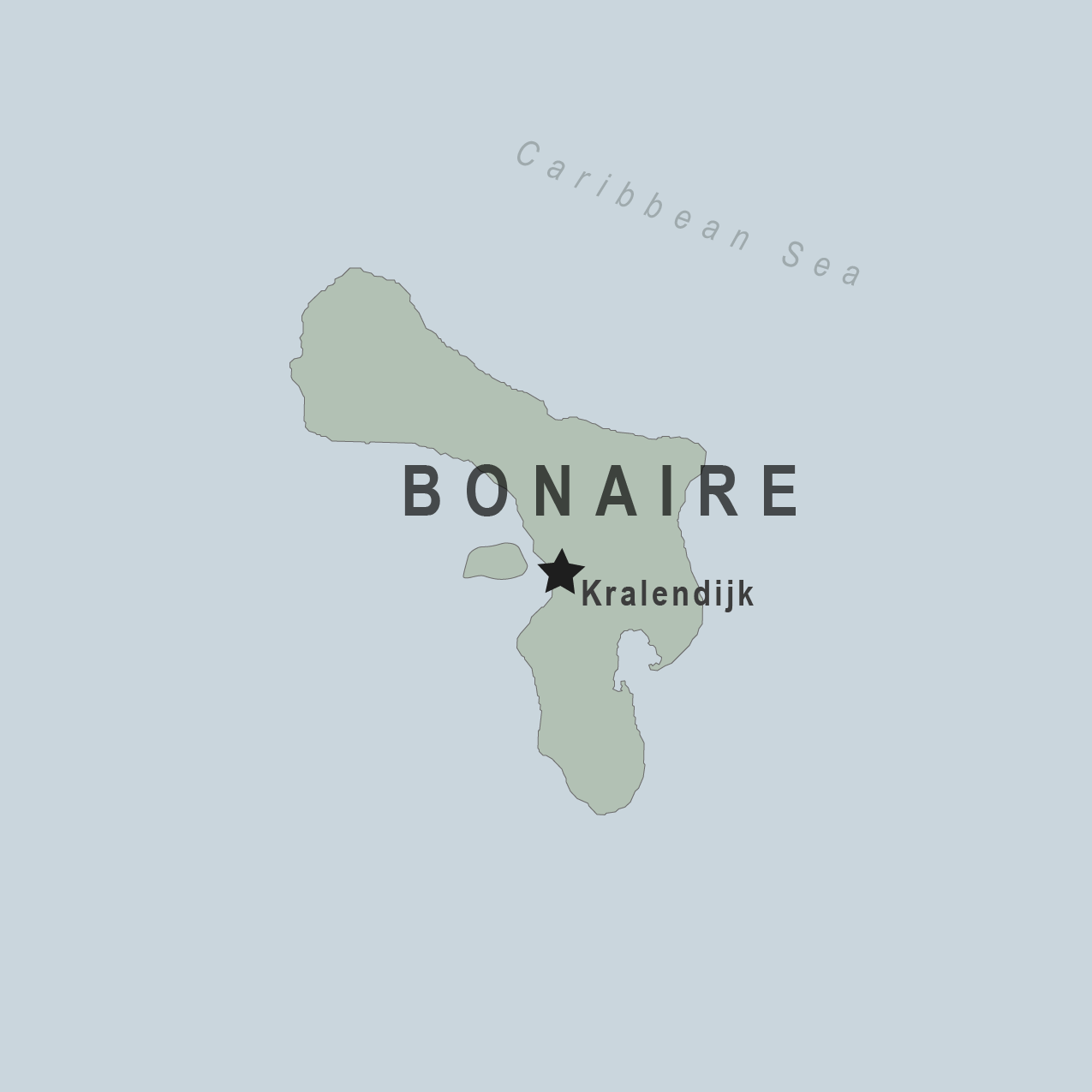
There are no notices currently in effect for Bonaire.
⇧ Top
Check the vaccines and medicines list and visit your doctor at least a month before your trip to get vaccines or medicines you may need. If you or your doctor need help finding a location that provides certain vaccines or medicines, visit the Find a Clinic page.
Routine vaccines
Recommendations.
Make sure you are up-to-date on all routine vaccines before every trip. Some of these vaccines include
- Chickenpox (Varicella)
- Diphtheria-Tetanus-Pertussis
- Flu (influenza)
- Measles-Mumps-Rubella (MMR)
Immunization schedules
All eligible travelers should be up to date with their COVID-19 vaccines. Please see Your COVID-19 Vaccination for more information.
COVID-19 vaccine
Hepatitis A
Recommended for unvaccinated travelers one year old or older going to Bonaire.
Infants 6 to 11 months old should also be vaccinated against Hepatitis A. The dose does not count toward the routine 2-dose series.
Travelers allergic to a vaccine component or who are younger than 6 months should receive a single dose of immune globulin, which provides effective protection for up to 2 months depending on dosage given.
Unvaccinated travelers who are over 40 years old, immunocompromised, or have chronic medical conditions planning to depart to a risk area in less than 2 weeks should get the initial dose of vaccine and at the same appointment receive immune globulin.
Hepatitis A - CDC Yellow Book
Dosing info - Hep A
Hepatitis B
Recommended for unvaccinated travelers of all ages traveling to Bonaire.
Hepatitis B - CDC Yellow Book
Dosing info - Hep B
Cases of measles are on the rise worldwide. Travelers are at risk of measles if they have not been fully vaccinated at least two weeks prior to departure, or have not had measles in the past, and travel internationally to areas where measles is spreading.
All international travelers should be fully vaccinated against measles with the measles-mumps-rubella (MMR) vaccine, including an early dose for infants 6–11 months, according to CDC’s measles vaccination recommendations for international travel .
Measles (Rubeola) - CDC Yellow Book
Bonaire is free of dog rabies. However, rabies may still be present in wildlife species, particularly bats. CDC recommends rabies vaccination before travel only for people working directly with wildlife. These people may include veterinarians, animal handlers, field biologists, or laboratory workers working with specimens from mammalian species.
Rabies - CDC Yellow Book
Recommended for most travelers, especially those staying with friends or relatives or visiting smaller cities or rural areas.
Typhoid - CDC Yellow Book
Dosing info - Typhoid
Yellow Fever
Required for travelers ≥9 months old arriving from countries with risk for YF virus transmission; this includes >12-hour airport transits or layovers in countries with risk for YF virus transmission. 1
Yellow Fever - CDC Yellow Book
Avoid contaminated water
Leptospirosis
How most people get sick (most common modes of transmission)
- Touching urine or other body fluids from an animal infected with leptospirosis
- Swimming or wading in urine-contaminated fresh water, or contact with urine-contaminated mud
- Drinking water or eating food contaminated with animal urine
- Avoid contaminated water and soil
Clinical Guidance
Avoid bug bites.
- Mosquito bite
- Avoid Bug Bites
- An infected pregnant woman can spread it to her unborn baby
Airborne & droplet
- Breathing in air or accidentally eating food contaminated with the urine, droppings, or saliva of infected rodents
- Bite from an infected rodent
- Less commonly, being around someone sick with hantavirus (only occurs with Andes virus)
- Avoid rodents and areas where they live
- Avoid sick people
Tuberculosis (TB)
- Breathe in TB bacteria that is in the air from an infected and contagious person coughing, speaking, or singing.
Learn actions you can take to stay healthy and safe on your trip. Vaccines cannot protect you from many diseases in Bonaire, so your behaviors are important.
Eat and drink safely
Food and water standards around the world vary based on the destination. Standards may also differ within a country and risk may change depending on activity type (e.g., hiking versus business trip). You can learn more about safe food and drink choices when traveling by accessing the resources below.
- Choose Safe Food and Drinks When Traveling
- Water Treatment Options When Hiking, Camping or Traveling
- Global Water, Sanitation and Hygiene | Healthy Water
- Avoid Contaminated Water During Travel
You can also visit the Department of State Country Information Pages for additional information about food and water safety.
Prevent bug bites
Bugs (like mosquitoes, ticks, and fleas) can spread a number of diseases in Bonaire. Many of these diseases cannot be prevented with a vaccine or medicine. You can reduce your risk by taking steps to prevent bug bites.
What can I do to prevent bug bites?
- Cover exposed skin by wearing long-sleeved shirts, long pants, and hats.
- Use an appropriate insect repellent (see below).
- Use permethrin-treated clothing and gear (such as boots, pants, socks, and tents). Do not use permethrin directly on skin.
- Stay and sleep in air-conditioned or screened rooms.
- Use a bed net if the area where you are sleeping is exposed to the outdoors.
What type of insect repellent should I use?
- FOR PROTECTION AGAINST TICKS AND MOSQUITOES: Use a repellent that contains 20% or more DEET for protection that lasts up to several hours.
- Picaridin (also known as KBR 3023, Bayrepel, and icaridin)
- Oil of lemon eucalyptus (OLE) or para-menthane-diol (PMD)
- 2-undecanone
- Always use insect repellent as directed.
What should I do if I am bitten by bugs?
- Avoid scratching bug bites, and apply hydrocortisone cream or calamine lotion to reduce the itching.
- Check your entire body for ticks after outdoor activity. Be sure to remove ticks properly.
What can I do to avoid bed bugs?
Although bed bugs do not carry disease, they are an annoyance. See our information page about avoiding bug bites for some easy tips to avoid them. For more information on bed bugs, see Bed Bugs .
For more detailed information on avoiding bug bites, see Avoid Bug Bites .
Stay safe outdoors
If your travel plans in Bonaire include outdoor activities, take these steps to stay safe and healthy during your trip.
- Stay alert to changing weather conditions and adjust your plans if conditions become unsafe.
- Prepare for activities by wearing the right clothes and packing protective items, such as bug spray, sunscreen, and a basic first aid kit.
- Consider learning basic first aid and CPR before travel. Bring a travel health kit with items appropriate for your activities.
- If you are outside for many hours in heat, eat salty snacks and drink water to stay hydrated and replace salt lost through sweating.
- Protect yourself from UV radiation : use sunscreen with an SPF of at least 15, wear protective clothing, and seek shade during the hottest time of day (10 a.m.–4 p.m.).
- Be especially careful during summer months and at high elevation. Because sunlight reflects off snow, sand, and water, sun exposure may be increased during activities like skiing, swimming, and sailing.
- Very cold temperatures can be dangerous. Dress in layers and cover heads, hands, and feet properly if you are visiting a cold location.
Stay safe around water
- Swim only in designated swimming areas. Obey lifeguards and warning flags on beaches.
- Practice safe boating—follow all boating safety laws, do not drink alcohol if driving a boat, and always wear a life jacket.
- Do not dive into shallow water.
- Do not swim in freshwater in developing areas or where sanitation is poor.
- Avoid swallowing water when swimming. Untreated water can carry germs that make you sick.
- To prevent infections, wear shoes on beaches where there may be animal waste.
Keep away from animals
Most animals avoid people, but they may attack if they feel threatened, are protecting their young or territory, or if they are injured or ill. Animal bites and scratches can lead to serious diseases such as rabies.
Follow these tips to protect yourself:
- Do not touch or feed any animals you do not know.
- Do not allow animals to lick open wounds, and do not get animal saliva in your eyes or mouth.
- Avoid rodents and their urine and feces.
- Traveling pets should be supervised closely and not allowed to come in contact with local animals.
- If you wake in a room with a bat, seek medical care immediately. Bat bites may be hard to see.
All animals can pose a threat, but be extra careful around dogs, bats, monkeys, sea animals such as jellyfish, and snakes. If you are bitten or scratched by an animal, immediately:
- Wash the wound with soap and clean water.
- Go to a doctor right away.
- Tell your doctor about your injury when you get back to the United States.
Consider buying medical evacuation insurance. Rabies is a deadly disease that must be treated quickly, and treatment may not be available in some countries.
Reduce your exposure to germs
Follow these tips to avoid getting sick or spreading illness to others while traveling:
- Wash your hands often, especially before eating.
- If soap and water aren’t available, clean hands with hand sanitizer (containing at least 60% alcohol).
- Don’t touch your eyes, nose, or mouth. If you need to touch your face, make sure your hands are clean.
- Cover your mouth and nose with a tissue or your sleeve (not your hands) when coughing or sneezing.
- Try to avoid contact with people who are sick.
- If you are sick, stay home or in your hotel room, unless you need medical care.
Avoid sharing body fluids
Diseases can be spread through body fluids, such as saliva, blood, vomit, and semen.
Protect yourself:
- Use latex condoms correctly.
- Do not inject drugs.
- Limit alcohol consumption. People take more risks when intoxicated.
- Do not share needles or any devices that can break the skin. That includes needles for tattoos, piercings, and acupuncture.
- If you receive medical or dental care, make sure the equipment is disinfected or sanitized.
Know how to get medical care while traveling
Plan for how you will get health care during your trip, should the need arise:
- Carry a list of local doctors and hospitals at your destination.
- Review your health insurance plan to determine what medical services it would cover during your trip. Consider purchasing travel health and medical evacuation insurance.
- Carry a card that identifies, in the local language, your blood type, chronic conditions or serious allergies, and the generic names of any medications you take.
- Some prescription drugs may be illegal in other countries. Call Bonaire’s embassy to verify that all of your prescription(s) are legal to bring with you.
- Bring all the medicines (including over-the-counter medicines) you think you might need during your trip, including extra in case of travel delays. Ask your doctor to help you get prescriptions filled early if you need to.
Many foreign hospitals and clinics are accredited by the Joint Commission International. A list of accredited facilities is available at their website ( www.jointcommissioninternational.org ).
In some countries, medicine (prescription and over-the-counter) may be substandard or counterfeit. Bring the medicines you will need from the United States to avoid having to buy them at your destination.
Select safe transportation
Motor vehicle crashes are the #1 killer of healthy US citizens in foreign countries.
In many places cars, buses, large trucks, rickshaws, bikes, people on foot, and even animals share the same lanes of traffic, increasing the risk for crashes.
Be smart when you are traveling on foot.
- Use sidewalks and marked crosswalks.
- Pay attention to the traffic around you, especially in crowded areas.
- Remember, people on foot do not always have the right of way in other countries.
Riding/Driving
Choose a safe vehicle.
- Choose official taxis or public transportation, such as trains and buses.
- Ride only in cars that have seatbelts.
- Avoid overcrowded, overloaded, top-heavy buses and minivans.
- Avoid riding on motorcycles or motorbikes, especially motorbike taxis. (Many crashes are caused by inexperienced motorbike drivers.)
- Choose newer vehicles—they may have more safety features, such as airbags, and be more reliable.
- Choose larger vehicles, which may provide more protection in crashes.
Think about the driver.
- Do not drive after drinking alcohol or ride with someone who has been drinking.
- Consider hiring a licensed, trained driver familiar with the area.
- Arrange payment before departing.
Follow basic safety tips.
- Wear a seatbelt at all times.
- Sit in the back seat of cars and taxis.
- When on motorbikes or bicycles, always wear a helmet. (Bring a helmet from home, if needed.)
- Avoid driving at night; street lighting in certain parts of Bonaire may be poor.
- Do not use a cell phone or text while driving (illegal in many countries).
- Travel during daylight hours only, especially in rural areas.
- If you choose to drive a vehicle in Bonaire, learn the local traffic laws and have the proper paperwork.
- Get any driving permits and insurance you may need. Get an International Driving Permit (IDP). Carry the IDP and a US-issued driver's license at all times.
- Check with your auto insurance policy's international coverage, and get more coverage if needed. Make sure you have liability insurance.
- Avoid using local, unscheduled aircraft.
- If possible, fly on larger planes (more than 30 seats); larger airplanes are more likely to have regular safety inspections.
- Try to schedule flights during daylight hours and in good weather.
Medical Evacuation Insurance
If you are seriously injured, emergency care may not be available or may not meet US standards. Trauma care centers are uncommon outside urban areas. Having medical evacuation insurance can be helpful for these reasons.
Helpful Resources
Road Safety Overseas (Information from the US Department of State): Includes tips on driving in other countries, International Driving Permits, auto insurance, and other resources.
The Association for International Road Travel has country-specific Road Travel Reports available for most countries for a minimal fee.
Maintain personal security
Use the same common sense traveling overseas that you would at home, and always stay alert and aware of your surroundings.
Before you leave
- Research your destination(s), including local laws, customs, and culture.
- Monitor travel advisories and alerts and read travel tips from the US Department of State.
- Enroll in the Smart Traveler Enrollment Program (STEP) .
- Leave a copy of your itinerary, contact information, credit cards, and passport with someone at home.
- Pack as light as possible, and leave at home any item you could not replace.
While at your destination(s)
- Carry contact information for the nearest US embassy or consulate .
- Carry a photocopy of your passport and entry stamp; leave the actual passport securely in your hotel.
- Follow all local laws and social customs.
- Do not wear expensive clothing or jewelry.
- Always keep hotel doors locked, and store valuables in secure areas.
- If possible, choose hotel rooms between the 2nd and 6th floors.
Healthy Travel Packing List
Use the Healthy Travel Packing List for Bonaire for a list of health-related items to consider packing for your trip. Talk to your doctor about which items are most important for you.
Why does CDC recommend packing these health-related items?
It’s best to be prepared to prevent and treat common illnesses and injuries. Some supplies and medicines may be difficult to find at your destination, may have different names, or may have different ingredients than what you normally use.
If you are not feeling well after your trip, you may need to see a doctor. If you need help finding a travel medicine specialist, see Find a Clinic . Be sure to tell your doctor about your travel, including where you went and what you did on your trip. Also tell your doctor if you were bitten or scratched by an animal while traveling.
For more information on what to do if you are sick after your trip, see Getting Sick after Travel .
Map Disclaimer - The boundaries and names shown and the designations used on maps do not imply the expression of any opinion whatsoever on the part of the Centers for Disease Control and Prevention concerning the legal status of any country, territory, city or area or of its authorities, or concerning the delimitation of its frontiers or boundaries. Approximate border lines for which there may not yet be full agreement are generally marked.
Other Destinations
If you need help finding travel information:
Message & data rates may apply. CDC Privacy Policy
File Formats Help:
- Adobe PDF file
- Microsoft PowerPoint file
- Microsoft Word file
- Microsoft Excel file
- Audio/Video file
- Apple Quicktime file
- RealPlayer file
- Zip Archive file
Exit Notification / Disclaimer Policy
- The Centers for Disease Control and Prevention (CDC) cannot attest to the accuracy of a non-federal website.
- Linking to a non-federal website does not constitute an endorsement by CDC or any of its employees of the sponsors or the information and products presented on the website.
- You will be subject to the destination website's privacy policy when you follow the link.
- CDC is not responsible for Section 508 compliance (accessibility) on other federal or private website.
Update May 10, 2024
Information for u.s. citizens in the middle east.
- Travel Advisories |
- Contact Us |
- MyTravelGov |
Find U.S. Embassies & Consulates
Travel.state.gov, congressional liaison, special issuance agency, u.s. passports, international travel, intercountry adoption, international parental child abduction, records and authentications, popular links, travel advisories, mytravelgov, stay connected, legal resources, legal information, info for u.s. law enforcement, replace or certify documents.
Before You Go
Learn About Your Destination
While Abroad
Emergencies
Share this page:
Bonaire, Sint Eustatius, and Saba
Travel Advisory July 17, 2023
Bonaire - level 1: exercise normal precautions.
Reissued with obsolete COVID-19 page links removed.
Exercise normal precautions in Bonaire.
Read the country information page for additional information on travel to Bonaire.
If you decide to travel to Bonaire:
- Enroll in the Smart Traveler Enrollment Program (STEP) to receive Alerts and make it easier to locate you in an emergency.
- Follow the Department of State on Facebook and Twitter .
- Review the Country Security Report for Bonaire.
- Prepare a contingency plan for emergency situations. Review the Traveler’s Checklist .
- Visit the CDC page for the latest Travel Health Information related to your travel.
Travel Advisory October 16, 2023
Sint eustatius - level 1: exercise normal precautions.
Reissued after periodic review without changes.
Exercise normal precautions in Sint Eustatius.
Read the country information page for additional information on travel to Sint Eustatius.
If you decide to travel to Sint Eustatius:
- Read the Department of State’s COVID-19 page before planning any international travel, and read the Consulate's COVID-19 page for country-specific information on COVID-19 information.
- Enroll in the Smart Traveler Enrollment Program (STEP) to receive Alerts and make it easier to locate you in an emergency.
- Follow the Department of State on Facebook and Twitter .
- Review the Country Security Report for Sint Eustatius.
- Prepare a contingency plan for emergency situations. Review the Traveler’s Checklist .
Saba - Level 1: Exercise Normal Precautions
Exercise normal precautions in Saba.
Read the country information page for additional information on travel to Saba.
If you decide to travel to Saba:
- Read the Department of State’s COVID-19 page before planning any international travel, and read the Consulate's COVID-19 page for country-specific COVID-19 information.
- Review the Country Security Report for Saba.
Embassy Messages
View Alerts and Messages Archive
Quick Facts
Must be valid for period of stay.
One page required for entry stamp
None required for visits up to 180 days
Yellow fever if arriving from select countries .
$10,000 (or equivalent) must be declared
Embassies and Consulates
U.s. consulate general curacao.
J.B. Gorsiraweg 1, Willemstad, Curaçao Telephone : +(599) (9) 461-3066 Emergency After-Hours Telephone: +(599) (9)843-3066 (from Curaçao); +1-(503)-420-3115 (from the United States) Email: [email protected]
Destination Description
See the Department of State’s Fact Sheet on the Netherlands for information on U.S. - Netherlands relations.
Entry, Exit and Visa Requirements
All U.S. citizens must have a U.S. passport for all air travel to and from the BES Islands. All sea travelers must have a U.S. passport or passport card. Review further information on Bonaire travel here .
Upon arrival in the BES Islands, you must have:
- proof of onward or return ticket;
- proof of sufficient funds; and
- proof of lodging accommodations for your stay.
For the most current visa information please visit the website of the Caribbean Netherlands Immigration and Naturalisation Service . For further information, travelers may contact the Royal Netherlands Embassy or its consulates in the United States. For more information on visas or extending your visit, please call the Immigration Office of Bonaire at +599-715-8330. HIV/AIDS Restrictions: The U.S. Department of State is unaware of any HIV/AIDS entry restrictions for visitors to or foreign residents of the BES Islands. Find information on dual nationality , prevention of international child abduction , and customs information on our websites.
Safety and Security
Crime: Bonaire, Saba, and Sint Eustatius are all assessed as low-crime areas as their small populations provide a high level of social control and their police forces are professional and responsive. Thoe crimes that do occur are generally non-violent, financially-motivated, and opportunistic in nature such as pickpocketing, thefts of unattended bags, and smash and grabs of empty vehicles. Do not leave valuables unattended in public areas or in unsecured hotel rooms and rental homes. Keep a copy of your valid U.S. passport in a secure location in case it is stolen. Car theft, especially of rental vehicles, can occur. Vehicle leases or rentals may not be fully covered by local insurance when a vehicle is stolen or damaged. Be sure you are sufficiently insured when renting vehicles and jet skis.
The legal drinking age of 18 is not always rigorously enforced on the BES islands, so extra parental supervision may be appropriate. Travel in pairs or groups and be responsible with alcohol consumption. For information on scams, visit the Department of State and FBI pages on scams and safety.
Victims of Crime: Dial 911 for police assistance in the BES Islands. Contact the U.S. Consulate at (+599)(9)-461-3066 after you have contacted local police. Remember that local authorities are responsible for investigating and prosecuting the crime.
Do not rely on hotels, restaurants, or tour companies to make the police report for you.
For more information, see our webpage on help for U.S. victims of crime overseas .
- help you find appropriate medical care
- assist you in reporting a crime to the police
- contact relatives or friends with your written consent
- Provide general information regarding the victim’s role during the local investigation and following its conclusion
- provide a list of local attorneys
- provide our information on victim’s compensation programs in the U.S .
- provide an emergency loan for repatriation to the United States and/or limited medical support in cases of destitution
- help you find accommodation and arrange flights home
- replace a stolen or lost passport
Domestic Violence : U.S. citizen victims of domestic violence are encouraged to contact the Consulate for assistance.
Tourism: The tourism industry is unevenly regulated, and safety inspections for equipment and facilities do not commonly occur. Hazardous areas/activities are not always identified with appropriate signage, and staff may not be trained or certified either by the host government or by recognized authorities in the field. In the event of an injury, appropriate medical treatment is typically available only in/near major cities. First responders are generally unable to access areas outside of major cities and to provide urgent medical treatment. U.S. citizens are encouraged to purchase medical evacuation insurance .
Local Laws & Special Circumstances
Criminal Penalties: You are subject to local laws. If you violate local laws, even unknowingly, you may be expelled, arrested, or imprisoned. Individuals establishing a business or practicing a profession that requires additional permits or licensing should seek information from the competent local authorities, prior to practicing or operating a business.
Furthermore, some laws are also prosecutable in the United States, regardless of local law. For examples, see our website on crimes against minors abroad and the Department of Justice website.
Arrest Notification: If you are arrested or detained, ask police or prison officials to notify the U.S. Consulate immediately. See our webpage for further information.
Dutch law allows for suspects to be held by order of a judge without a hearing during an investigation .
Counterfeit and Pirated Goods: Although counterfeit and pirated goods are prevalent in many countries, they may still be illegal according to local laws. You may also pay fines or have to give them up if you bring them back to the United States. See the U.S. Department of Justice website for more information.
Faith-Based Travelers: See the following webpages for details:
- Faith-Based Travel Information
- International Religious Freedom Report – see country reports
- Human Rights Report – see country reports
- Hajj Fact Sheet for Travelers
- Best Practices for Volunteering Abroad
LGBTQI+ Travelers: There are no legal restrictions on same-sex sexual relations or the organization of LGBTQI+ events in the BES Islands.
See our LGBTQI+ Travel Information page and section 6 of our Human Rights report for further details.
Travelers with Disabilities: The law in the Dutch Caribbean prohibits discrimination against persons with physical, sensory, intellectual or mental disabilities, and the law is enforced. Social acceptance of persons with disabilities in public is as prevalent as in the United States. The most common types of accessibility may include accessible facilities, information, and communication/access to services/ease of movement or access. However, accessibility may be limited in some lodgings and general infrastructure.
- Please visit the InfoBonaire Website for Handicapped and Disabled Services for more information.
Students: See our Students Abroad page and FBI travel tips .
Women Travelers: See our travel tips for Women Travelers .
Access to quality medical care is limited on the BES Islands, and facilities do not offer the health and service standards typically expected in the United States .
For emergency services in the BES Islands, dial 911 .
Ambulance services are widely available.
A list of medical facilities in the BES Islands is available on our Consulate website. We do not endorse or recommend any specific medical provider or clinic.
We do not pay medical bills. Be aware that U.S. Medicare/Medicaid does not apply overseas. Most hospitals and doctors overseas do not accept U.S. health insurance.
Medical Insurance: Make sure your health insurance plan provides coverage overseas. Most care providers overseas only accept cash payments. See our webpage for more information on overseas insurance coverage. Visit the U.S. Centers for Disease Control and Prevention for more information on type of insurance you should consider before you travel overseas.
We strongly recommend supplemental insurance to cover medical evacuation.
Medicines: Always carry your prescription medication in original packaging, along with your doctor’s prescription. If traveling with prescription medication, check with the government of the Netherlands to ensure the medication is legal in the BES islands. Always carry your prescription medication in original packaging with your doctor’s prescription.
Drug stores or “boticas” provide prescription and over-the-counter medicine. Visitors need a local prescription, and may not be able to find medications normally available in the U.S. Emergency services are usually quick to respond.
Vaccinations: Be up-to-date on all vaccinations recommended by the U.S. Centers for Disease Control and Prevention.
Use the U.S. Centers for Disease Control and Prevention recommended mosquito repellents and sleep under insecticide-impregnated mosquito nets. Chemoprophylaxis is recommended for all travelers even for short stays.
Visit the U.S. Centers for Disease Control and Prevention website for more information about Resources for Travelers regarding specific issues in the BES Islands.
Further health information:
- World Health Organization
- U.S. Centers for Disease Control and Prevention (CDC)
Air Quality: Visit AirNow Department of State for information on air quality at U.S. Embassies and Consulates.
Travel and Transportation
Road Conditions and Safety: Nonexistent, hidden, and poorly maintained street signs are a major road hazard on the BES islands. Proceed through intersections with caution. Roads can be extremely slippery during rainfall. Night driving is reasonably safe if you are familiar with the route and road conditions. Many streets are poorly lit or not lit at all. In Bonaire and St. Eustatius, be vigilant for wild donkeys or other animals crossing the road. Use caution when driving in Saba as roads tend to be steep and have many sharp turns.
The emergency service telephone number is 911. Police and ambulances tend to respond quickly to emergency situations.
Traffic Laws: Driving on the BES islands is on the right hand side. Right turns on red are prohibited and traffic conditions require somewhat defensive driving. Local laws require drivers and passengers to wear seat belts and motorcyclists to wear helmets. Children under 4 years of age must be in child safety seats, and children under 12 must ride in the back seat.
Public Transportation: Taxis are an easy form of transportation on the islands. Verify the price before entering the taxi, as there are no meters. Fares are quoted in U.S. dollars. In Bonaire, public minibuses are inexpensive and run nonstop during the day with no fixed schedule. Each minibus has a specific route displayed on the windshield. Buses, which run on the hour, have limited routes. The road conditions on the main thoroughfares are good to fair. There is no public transportation in Saba or St. Eustatius.
See our Road Safety page for more information.
Aviation Safety Oversight: The U.S. Federal Aviation Administration (FAA) has assessed the government of the BES Islands’ Civil Aviation Authority as being in compliance with International Civil Aviation Organization (ICAO) aviation safety standards for oversight of BES Islands’ air carrier operations. Further information may be found on the FAA’s safety assessment page .
Maritime Travel: Mariners planning travel to the BES Islands should also check for U.S. maritime advisories and alerts . Information may also be posted to the U.S. Coast Guard homeport website , and the NGA broadcast warnings .
For additional travel information
- Enroll in the Smart Traveler Enrollment Program (STEP) to receive security messages and make it easier to locate you in an emergency.
- Call us in Washington, D.C. at 1-888-407-4747 (toll-free in the United States and Canada) or 1-202-501-4444 (from all other countries) from 8:00 a.m. to 8:00 p.m., Eastern Standard Time, Monday through Friday (except U.S. federal holidays).
- See the State Department’s travel website for the Worldwide Caution and Travel Advisories .
- Follow us on Twitter and Facebook .
- See traveling safely abroad for useful travel tips.
Review information about International Parental Child Abduction in Bonaire, St. Eustatius, and Saba (BES) . For additional IPCA-related information, please see the International Child Abduction Prevention and Return Act ( ICAPRA ) report.
Travel Advisory Levels
Assistance for u.s. citizens, bonaire, sint eustatius and saba map, country map, sint eustatius, learn about your destination, enroll in step.

Subscribe to get up-to-date safety and security information and help us reach you in an emergency abroad.
Recommended Web Browsers: Microsoft Edge or Google Chrome.
Check passport expiration dates carefully for all travelers! Children’s passports are issued for 5 years, adult passports for 10 years.
Afghanistan
Antigua and Barbuda
Bosnia and Herzegovina
British Virgin Islands
Burkina Faso
Burma (Myanmar)
Cayman Islands
Central African Republic
Cote d Ivoire
Curaçao
Czech Republic
Democratic Republic of the Congo
Dominican Republic
El Salvador
Equatorial Guinea
Eswatini (Swaziland)
Falkland Islands
France (includes Monaco)
French Guiana
French Polynesia
French West Indies
Guadeloupe, Martinique, Saint Martin, and Saint Barthélemy (French West Indies)
Guinea-Bissau
Isle of Man
Israel, The West Bank and Gaza
Liechtenstein
Marshall Islands
Netherlands
New Caledonia
New Zealand
North Korea (Democratic People's Republic of Korea)
Papua New Guinea
Philippines
Republic of North Macedonia
Republic of the Congo
Saint Kitts and Nevis
Saint Lucia
Saint Vincent and the Grenadines
Sao Tome and Principe
Saudi Arabia
Sierra Leone
Sint Maarten
Solomon Islands
South Africa
South Korea
South Sudan
Switzerland
The Bahamas
Timor-Leste
Trinidad and Tobago
Turkmenistan
Turks and Caicos Islands
United Arab Emirates
United Kingdom
Vatican City (Holy See)
External Link
You are about to leave travel.state.gov for an external website that is not maintained by the U.S. Department of State.
Links to external websites are provided as a convenience and should not be construed as an endorsement by the U.S. Department of State of the views or products contained therein. If you wish to remain on travel.state.gov, click the "cancel" message.
You are about to visit:

- Getting to Bonaire
Bonaire Immigration and Entry Requirements
Entry requirements into bonaire explained..
Citizens of most countries in the world do not need a visa for their entry to our island.
Dutch citizens and US citizens.
European Dutch citizens, Dutch citizens from Curaçao, St. Maarten and Aruba and US citizens may freely enter Bonaire, St. Eustatius and Saba for up to 180 days every 365 days. If these Dutch citizens or US citizens want to work or do an internship, a maximum stay of 90 days per 365 days without a Declaration of Admittance by Law applies.
Other nationalities.
Foreigners can enter Bonaire for up to 90 days every 180 days. This means that no residence permit is required for that period. However, you must meet certain conditions, such as being able to show proof of return and a passport that is valid for your entire visit. The three-month period may be shortened by the officials at the border (KMar) depending on the purpose of your visit and your means of existence.
In certain situations, foreigners do require visas. Contact the embassy or consulate of the Kingdom of the Netherlands in your country of citizenship or residence for general questions about the issuance of visas (for tourist purposes or short stays).
For more information about visas, see www.rijksoverheid.nl . If you need additional information regarding entry requirements for Bonaire, check with the Immigration Department .
Nationals of the United States and Canada may submit for their entry to Bonaire either:
- A valid Passport
- An official birth certificate or an affidavit of birth, plus a valid driver’s license
- A certificate of naturalization for citizens born outside the United States, plus a valid driver’s license
- A re-entry permit to the US, a valid non-quota immigration visa, or an Alien Registration (green card) for non-USA citizens residing in the USA, plus a valid driver’s license
- NOTE: All United States citizens are required to have a passport to return to the U.S.
Visitor Tax
All visitors must pay a Visitor Tax of $75 per visit to Bonaire. This applies to all non-residents aged 13 and older. The Visitor Tax is mandatory for all non-residents traveling by plane or boat. The Visitor Tax can be paid online in advance up to 7 days before your arrival or upon arrival at the airport. Please make sure you use the link provided. If a website tries to charge you more than $75, then it is not the official website. For more questions, visit the FAQ page.
As of January 2023, cruise ship passengers pay a visitor tax of $10 per visit.
Need additional information? Wish to prolong your visit?
For more information on visas or prolongation of your visit, call the Immigration Office on Bonaire: Phone: +599-715-8330.
For information on dialing a Bonaire phone number from off-island, see the Phone page.

Thank you for supporting InfoBonaire advertisers!

- Privacy Overview
- 3rd Party Cookies
- Cookie Policy
This website uses cookies so that we can provide you with the best user experience possible. Cookie information is stored in your browser and performs functions such as recognising you when you return to our website and helping our team to understand which sections of the website you find most interesting and useful.
This website uses Google Analytics to collect anonymous information such as the number of visitors to the site, and the most popular pages.
Keeping this cookie enabled helps us to improve our website.
Please enable Strictly Necessary Cookies first so that we can save your preferences!
More information about our Cookie Policy

Flights to Bonaire with American Airlines
Popular flights to bonaire.
London (LGW) to
London (LHR) to
London (LON) to
Manchester (MAN) to
London (LCY) to
*Fares displayed have been collected within the last 24hrs and may no longer be available at time of booking. Some fares listed may include one or more connections that are Basic Economy, which class is subject to additional terms and conditions . Modifying this information may result in a different fare. To find the most updated fare, please visit aa.com. Additional baggage fees and charges for optional products and services may apply.
More Destinations Together
Our partnership with British Airways gives you access to the U.S. and beyond. When you fly with American or British Airways, you can earn and redeem AAdvantage® Miles, plus, enjoy the benefits of your AAdvantage® status on both airlines.

Discover best flight deals to Bonaire
- Manchester - Bonaire
- London - Bonaire

IMAGES
VIDEO
COMMENTS
Bonaire offers untouched dive sites that are among the last truly unspoiled places on earth. Discover over 85 dive sites beneath our turquoise seas, where you'll find thriving reefs teeming with more than 350 species of fish and 57 species of coral. Find a Reef to Dive.
Find info on Airlines that Fly to Bonaire, Accommodations, and Bonaire Travel Tips.Bonaire is a small island, but not small enough to walk everywhere. The Getting Around Bonaire page will link you to the various Car Rentals and Scooter companies so you can find just what you need.
Bonaire's standard tipping practices are similar to the U.S.; it's typical to leave an additional 10 to 15% in gratuity for waiters and taxi drivers. Defined by its unique colonial heritage ...
Bonaire. A small island with a desert landscape, Bonaire is not for everyone - but it is for divers and snorkelers who want to immerse themselves in that vibrant world under the sea. The beauty of Bonaire is that the coral reef, designated a national park, is just a few feet from the shoreline. Dozens of exceptional dive sites are easily ...
26 Cheap Beach Vacations for Travelers on a Budget. From landsailing along the Caribbean Sea to snorkeling in Bonaire National Marine Park and Washington Slagbaai National Park, these are the best ...
Get information on Bonaire Travel Guide - Expert Picks for your Vacation hotels, restaurants, entertainment, shopping, sightseeing, and activities. Read the Fodor's reviews, or post your own.
Bonaire is a small island, covering roughly 111 square miles. It's three to seven miles wide and 24 miles long. Twenty percent of the island is also covered by the Washington Slagbaai National ...
In Bonaire, residents 18 years and older who are registered on the island can receive the Corona vaccination. Bonaire has a total of 18,944 permanent and temporary residents aged 18 and older. The number of temporary residents is more than estimated at 1,500 people. So far, 70% of the 18,944 residents have received the first corona vaccination.
Bonaire Travel Tips and Visitor Information. Bonaire in the southern Caribbean has a small number of cruise and resorts visitors every year. It's mainly known for snorkeling and scuba diving. Bonaire is part of the ABC islands of Aruba, Bonaire and Curaçao. They have the reputation of lying somewhat safely below the Caribbean hurricane belt.
The island of Bonaire is best known for its' world-class diving and snorkeling, sapphire-blue seas and ongoing casual vibe. The smallest of the "ABC" islands in the Leeward Antilles, it's big on culture, adventure, food and fun. With a population of only about 18,000, and an overwhelming friendliness you'll find nowhere else, Bonaire ...
Travel Tips. Information. BANKS. Bonaire has a number of banks, all of which have ATMs located conveniently around the island. Banking hours are Monday through Friday 8 or 8:30am until 3:30 or 4pm. Some are open during the lunch hour. CLIMATE. The average air temperature is 82º Fahrenheit (30ºC)
Climate in Bonaire. Sitting just below the hurricane belt, Bonaire is a sunny, temperate place to visit with a low risk of tropical storms. Temperatures on the island fluctuate between 23°C and 25°C (73°F and 77°F) at night, and between 29°C and 31°C (84°F and 88°F) during the day. While the hottest season runs from May to October ...
Reissued with obsolete COVID-19 page links removed. Exercise normal precautions in Bonaire. Read the country information page for additional information on travel to Bonaire.. If you decide to travel to Bonaire: Enroll in the Smart Traveler Enrollment Program (STEP) to receive Alerts and make it easier to locate you in an emergency.; Follow the Department of State on Facebook and Twitter.
Crime. Petty crime, such as pickpocketing and purse snatching occurs in Bonaire. Residential break-ins and theft from vehicles, hotel rooms and rental units also take place. Ensure that your belongings, including your passport and other travel documents, are secure at all times. Never leave valuables such as jewellery, cell phones, electronics ...
Bonaire travel & destination guide provides information about vacations, hotels & other entertainment options. Also find interactive Bonaire maps & guide to other attractions. ... Caribbean Information Centre Caribbean.com is a travel site specializing in The Bahamas, Bermuda and the Caribbean region. ...
All international travelers should be fully vaccinated against measles with the measles-mumps-rubella (MMR) vaccine, including an early dose for infants 6-11 months, according to CDC's measles vaccination recommendations for international travel. Measles (Rubeola) - CDC Yellow Book. Rabies. Bonaire is free of dog rabies.
Call us in Washington, D.C. at 1-888-407-4747 (toll-free in the United States and Canada) or 1-202-501-4444 (from all other countries) from 8:00 a.m. to 8:00 p.m., Eastern Standard Time, Monday through Friday (except U.S. federal holidays). See the State Department's travel website for the Worldwide Caution and Travel Advisories.
Bonaire | Travel Information General Info, Travel Info, & FAQs are provided to assist with your vacation. CUSTOMS Visitors older than 15 years are allowed to bring in 400 cigarettes, 50 cigars, 250g of tobacco, two litres of distilled beverages and two litres of wine. For more information call the customs office (Douane Bonaire) at 599/717-8206 ...
Bonaire's tourism sector is expected receive a boost following JetBlue's new service from New York (JFK) to Bonaire International Airport (BON). Tickets go on sale later this month on the ...
For more information on visas or prolongation of your visit, call the Immigration Office on Bonaire: Phone: +599-715-8330. Clearing Customs in Bonaire For information on dialing a Bonaire phone number from off-island, see the Phone page.
Flights to Bonaire with American Airlines. Find American Airlines flights to Bonaire and book your trip! Enjoy our travel experiences and fly in style!